Why you can trust Tom's Hardware
AMD Ryzen 5 5600 and 5500 Application Benchmarks — The TLDR
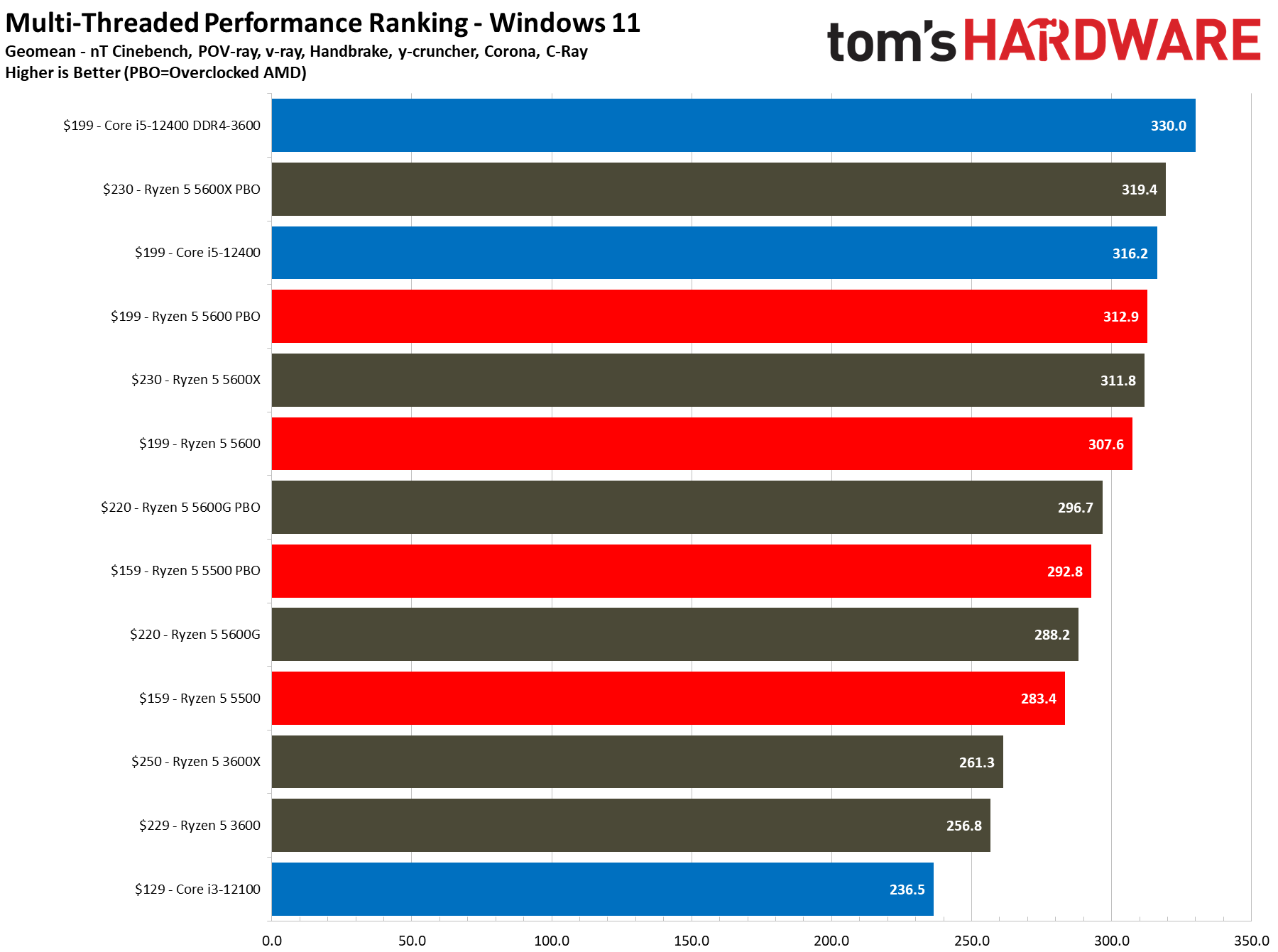
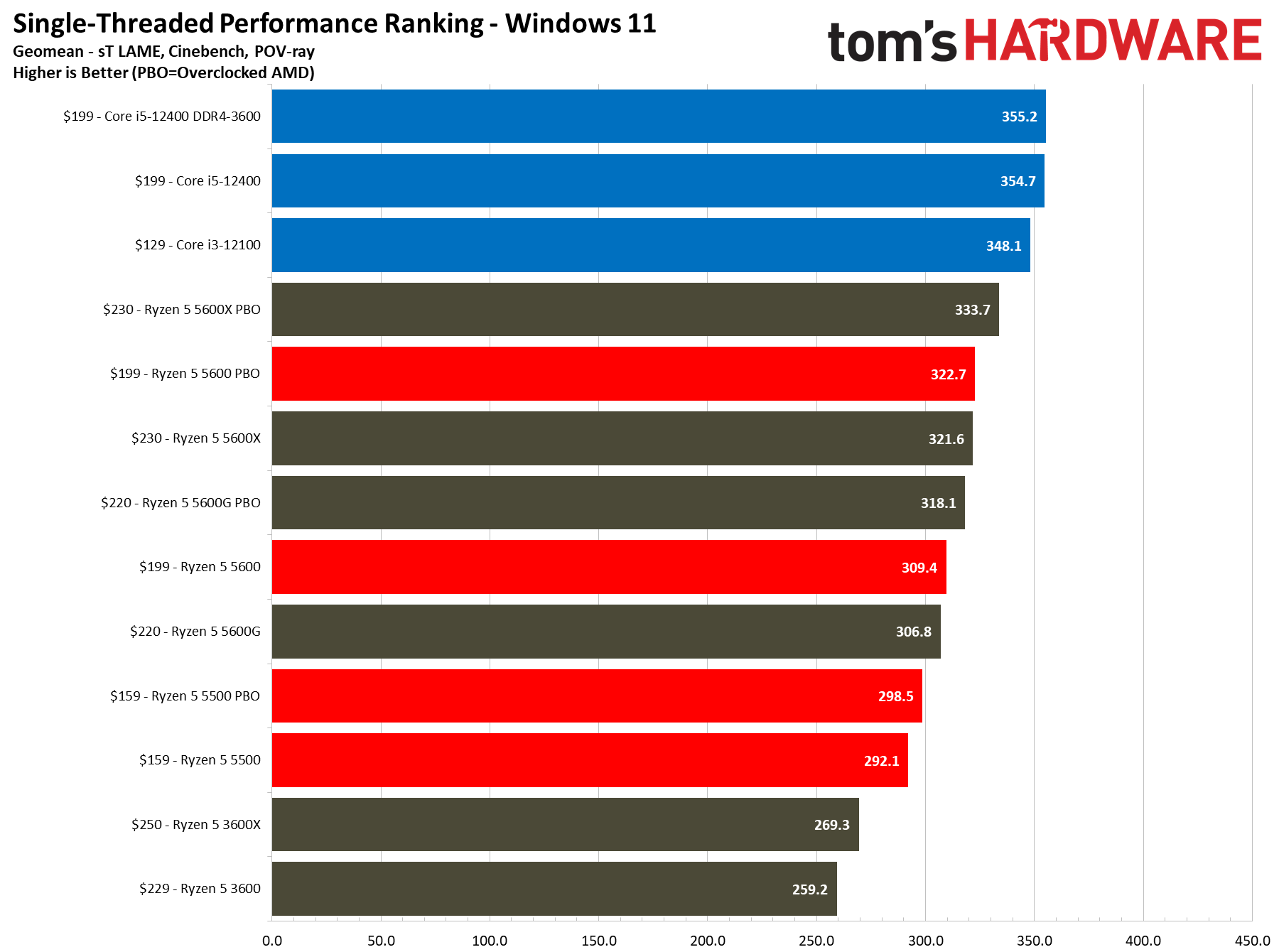
We can boil down productivity application performance into two broad categories: single- and multi-threaded. These slides show the geometric mean of performance in several of our most important tests in each category, but be sure to look at the expanded benchmark results further below.
The Alder Lake chips lead by healthy margins in our cumulative measurement of single-threaded performance, with the Core i5-12400 being 14.6% faster than the Ryzen 5 5600 at stock settings, and 10% faster after we tune both chips. Meanwhile, the stock Core i3-12100 is 19% faster than the Ryzen 5 5500, and overclocking the latter does little to rectify the disparity. You'll have to look to Intel's own Alder Lake family for faster single-threaded performance.
Turning to threaded applications, the Core i5-12400 is 2.8% faster than the Ryzen 5 5600 at stock settings, and 5.5% faster after tuning. Meanwhile, the Ryzen 5 5500 is 19% faster than the Core i3-12100 in threaded work, and that increases to 23% after overclocking.
| Tom's Hardware - Application Benchmarks | Single-Threaded | Multi-Threaded |
| Core i5-12400 | 100% | 100% |
| Core i3-12100 | 98.1% | 74.8% |
| Ryzen 5 5600X | 90.7% | 98.6% |
| Ryzen 5 5600 | 87.2% | 97.3% |
| Ryzen 5 5600G | 86.5% | 91.1% |
| Ryzen 5 5500 | 82.4% | 89.6% |
Rendering Benchmarks on AMD Ryzen 5 5600 and 5500
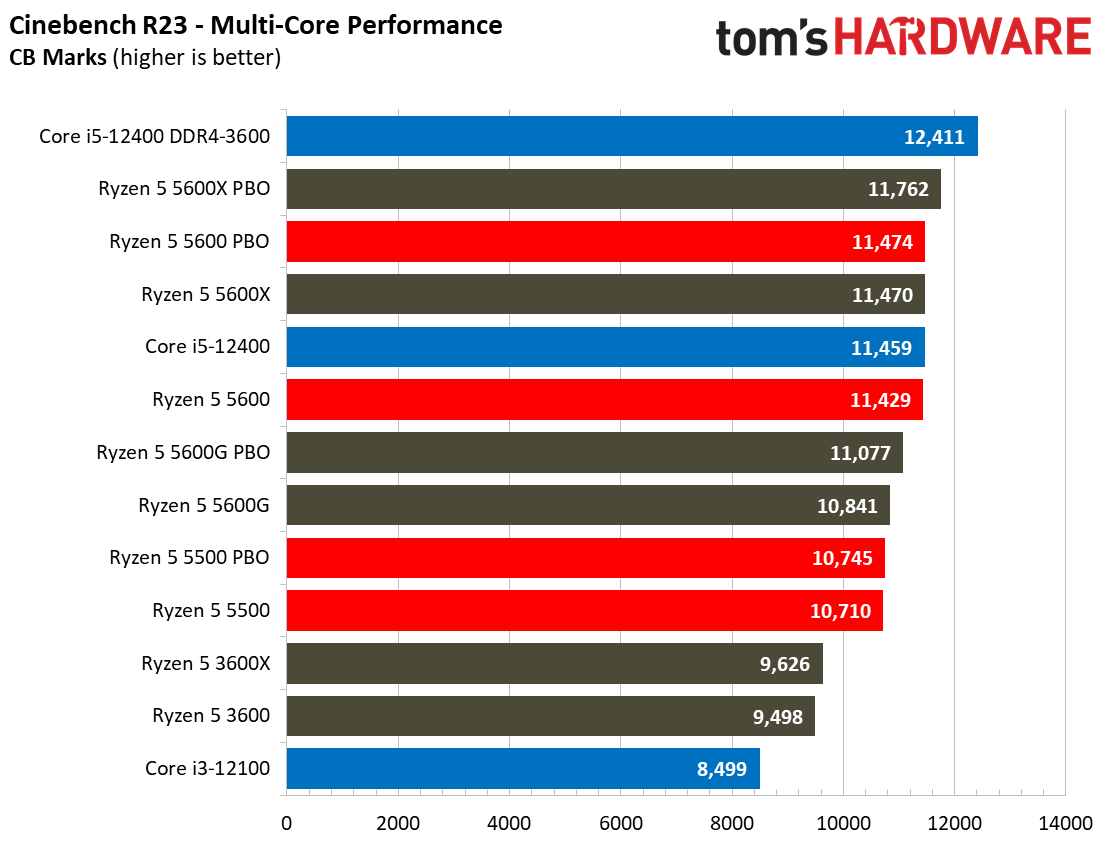
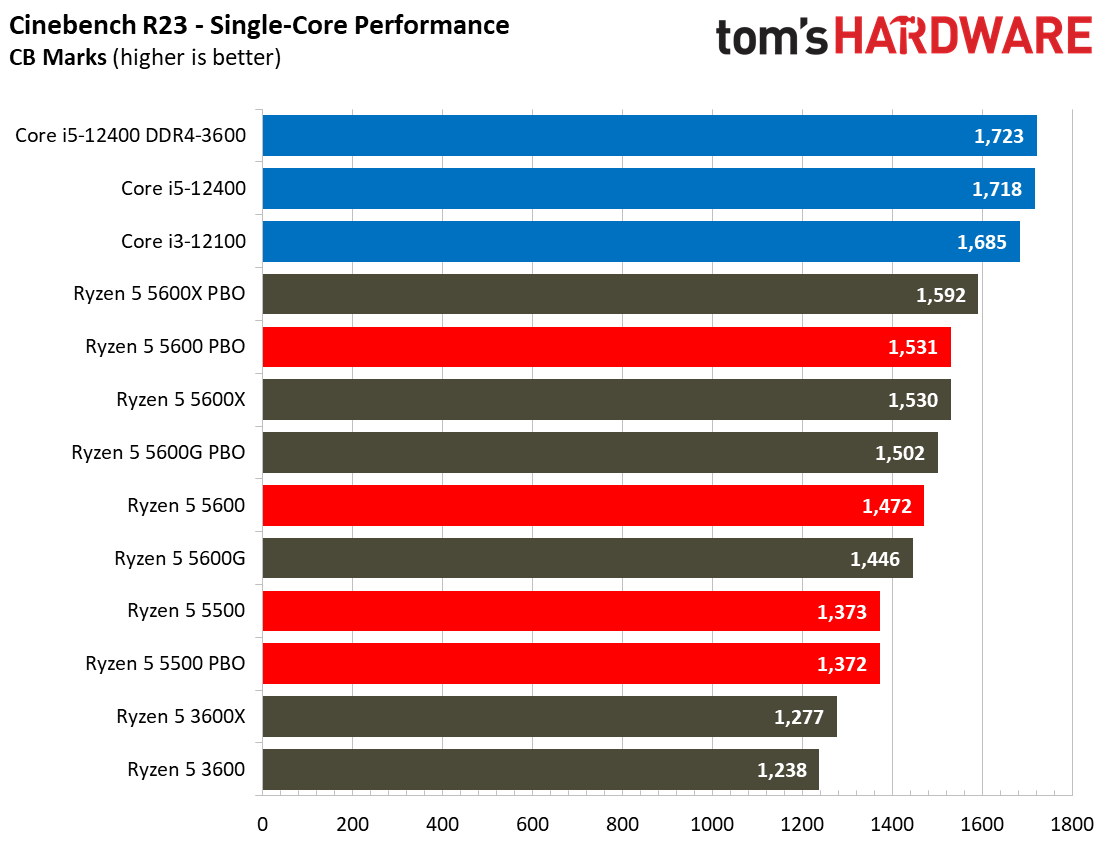
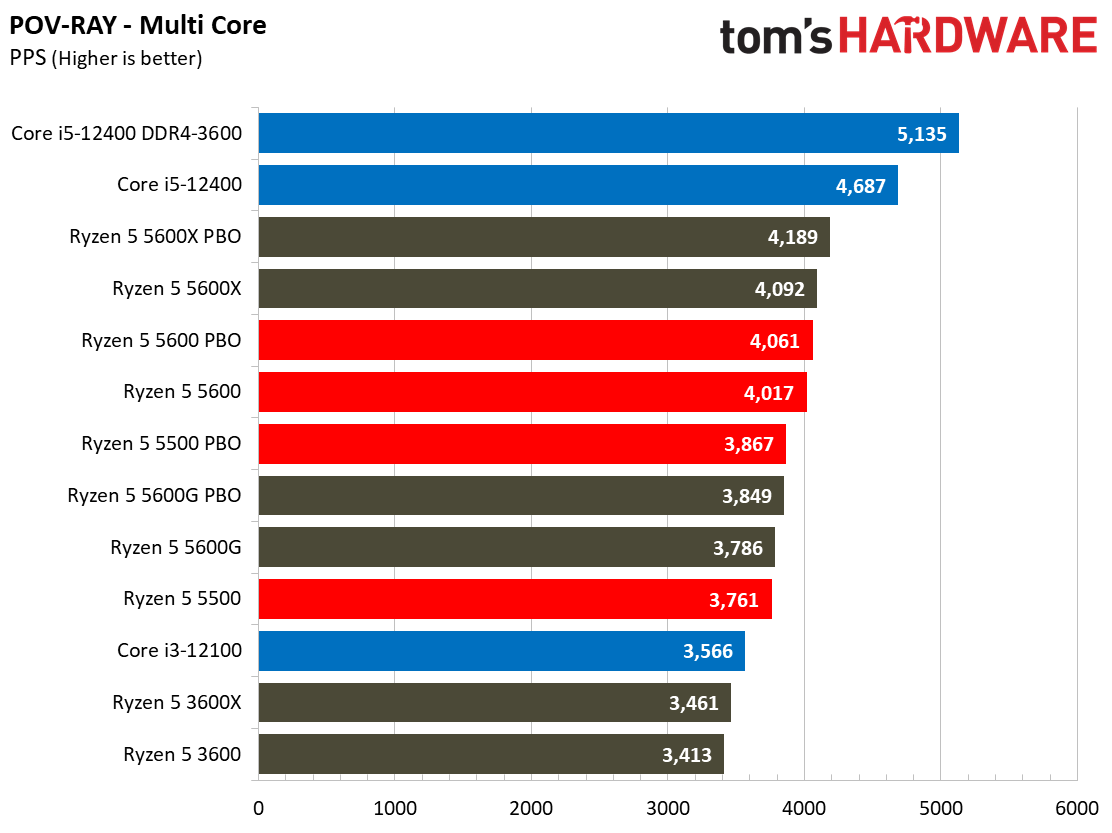
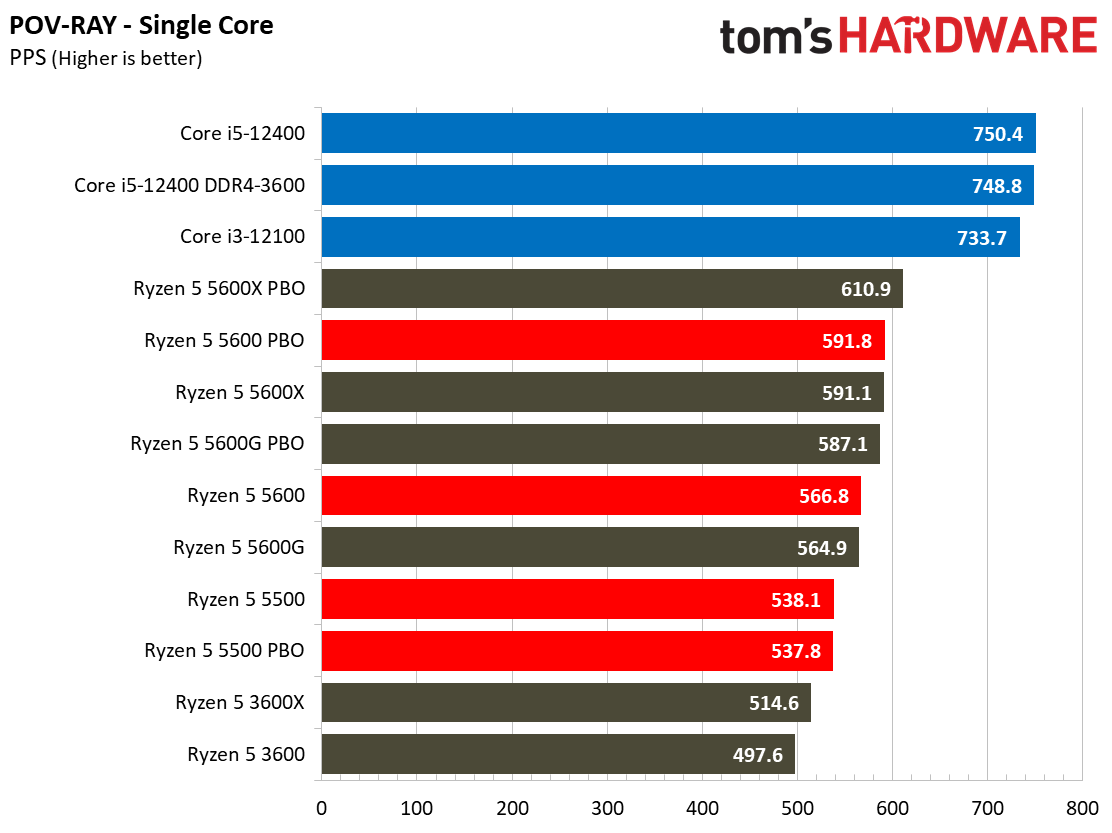
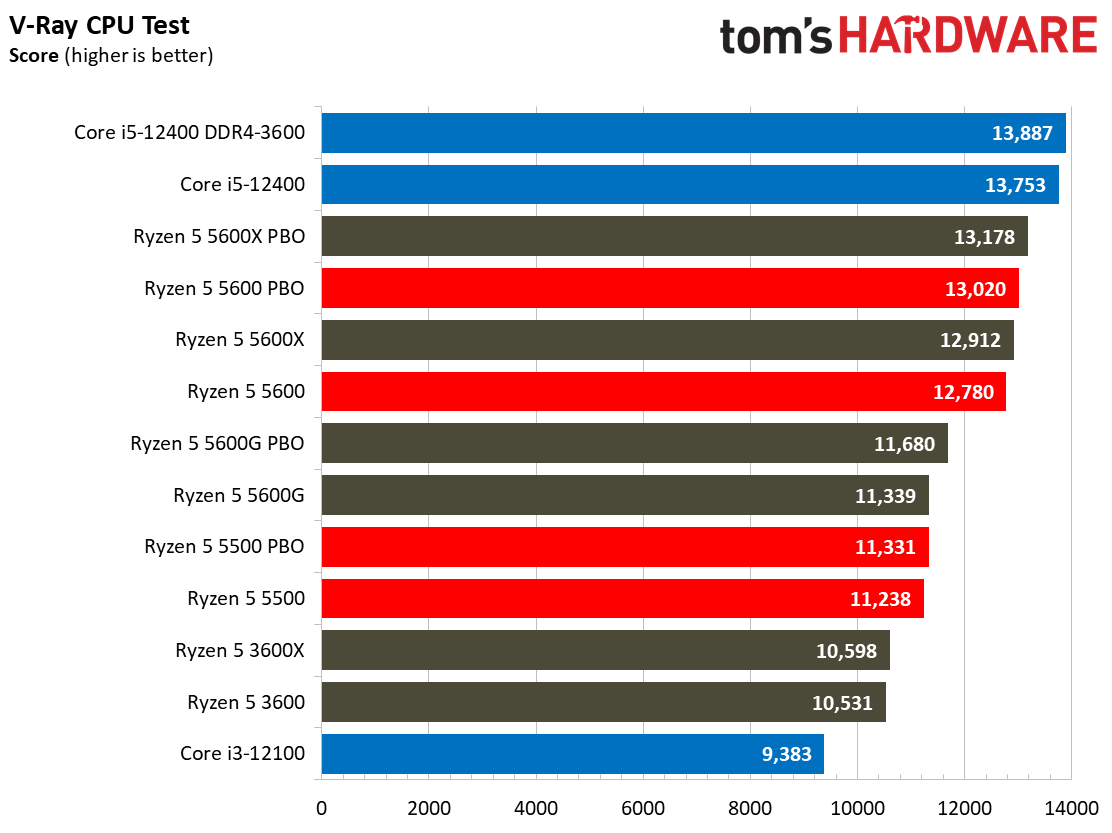
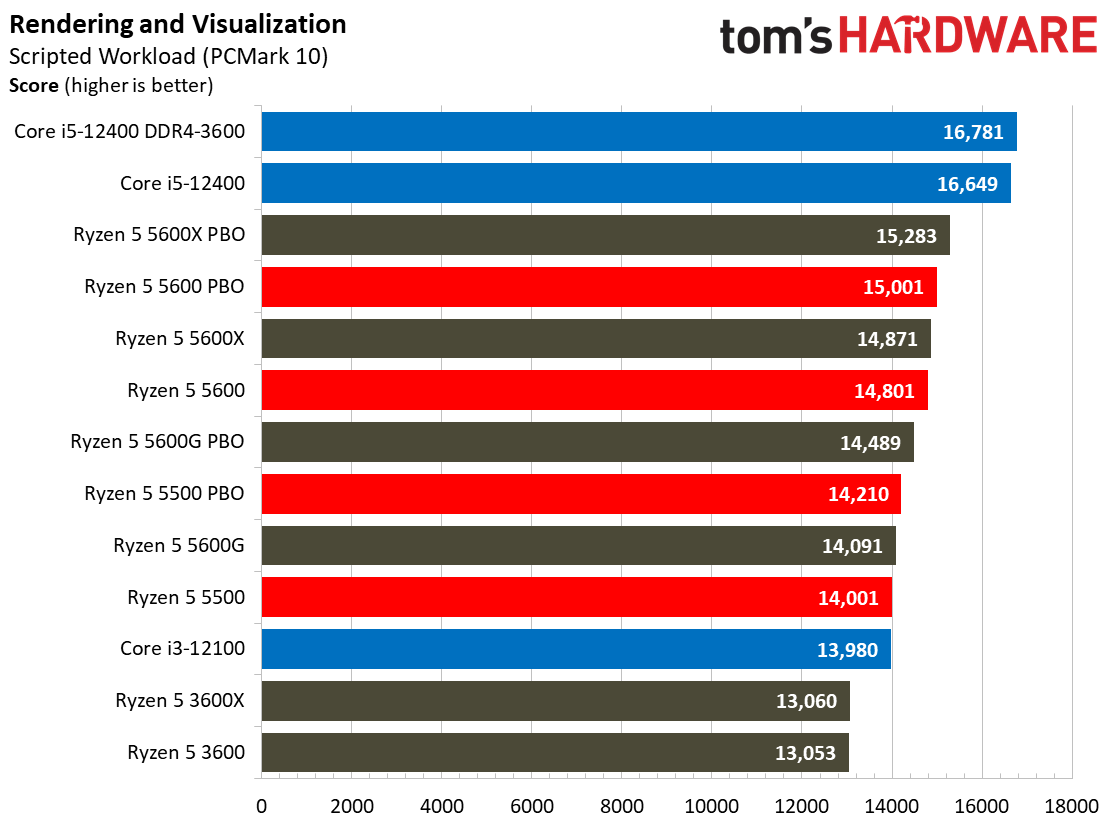
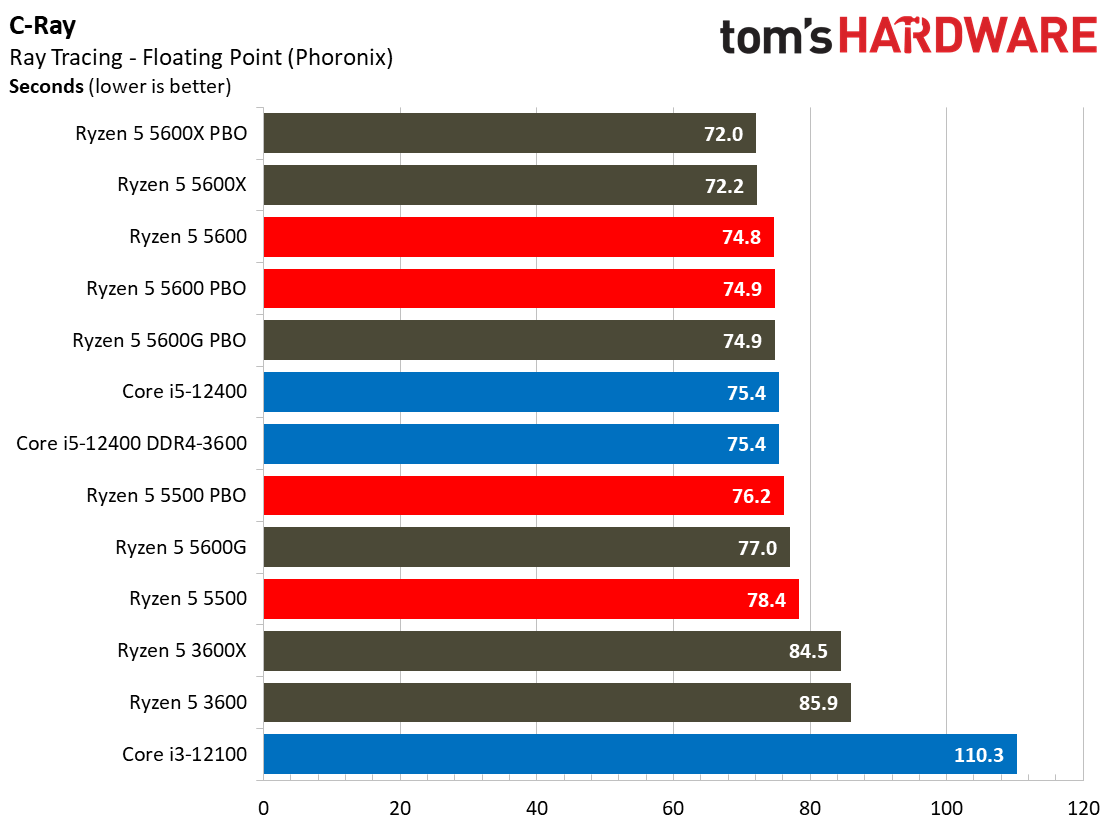
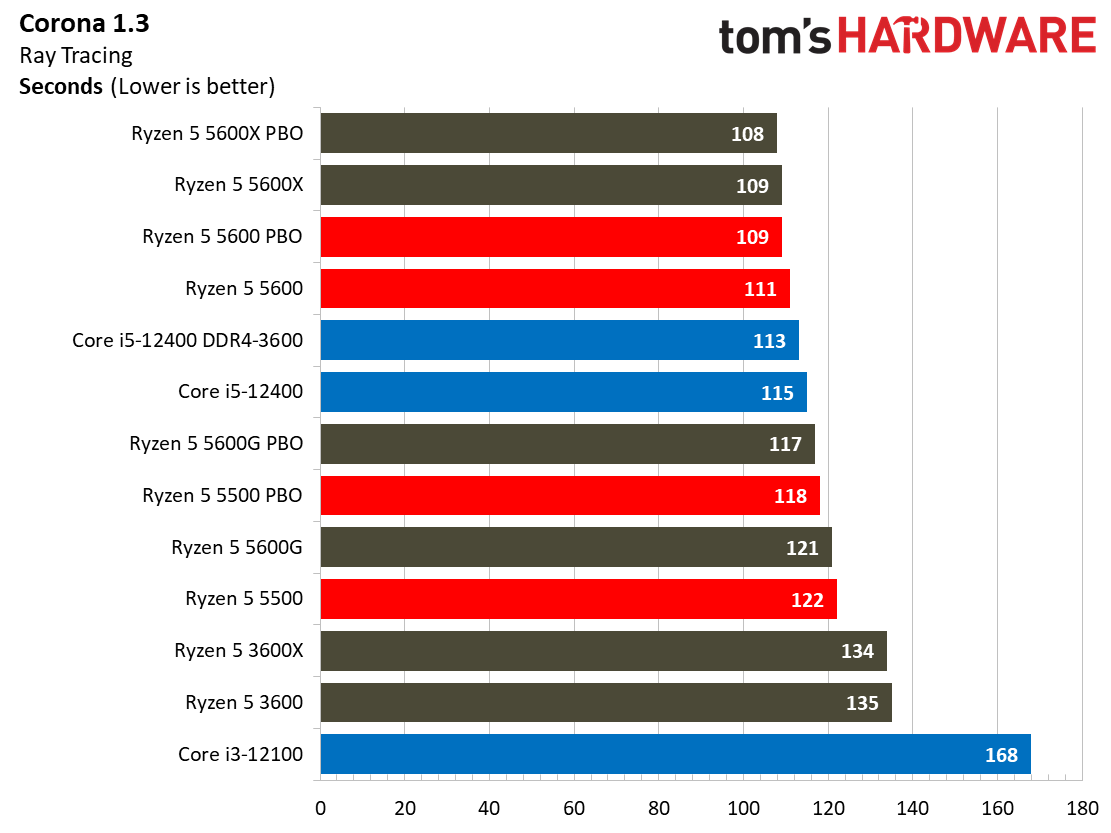
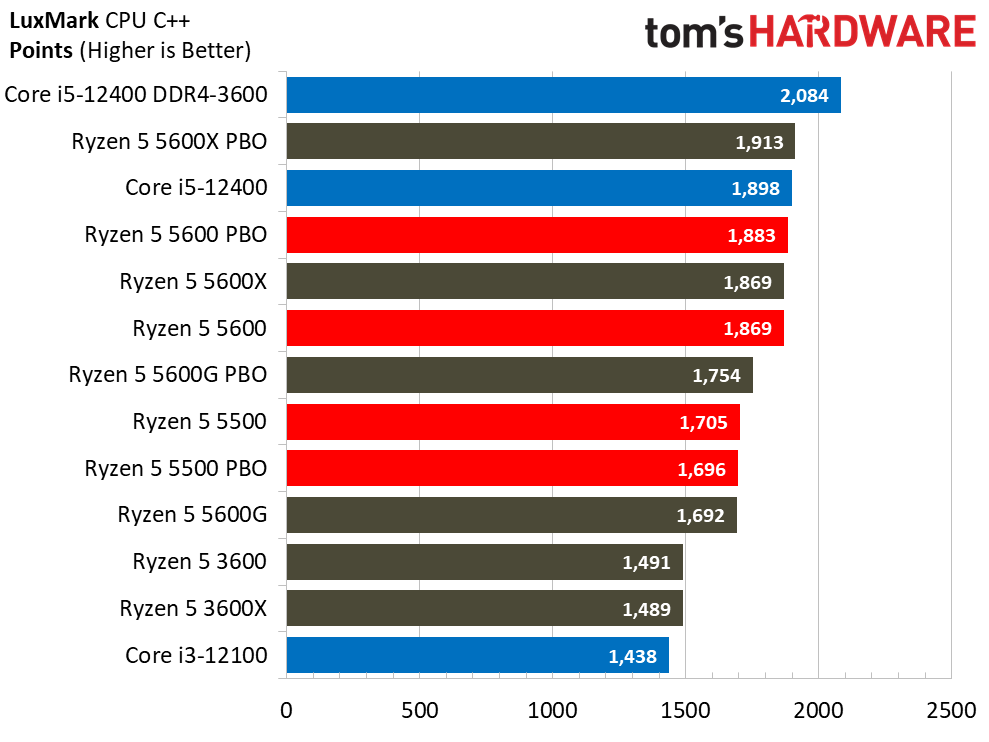
The Core i3-12100 is impressive in single-threaded rendering work, leading all competing Ryzen chips in both Cinebench and POV-Ray benchmarks, but its quad-core design isn't well suited for the heavily parallelized rendering workloads that you'll see in the real world.
The Core i5-12400 is a closer match for the Ryzen 5 5600 in the threaded benchmarks, but the Intel chip often trails only by a slight amount or leads convincingly. Paired with its absolute dominance in lightly-threaded rendering, the Core i5-12400 is the better all-rounder for this type of work.
Encoding Benchmarks on AMD Ryzen 5 5600 and 5500
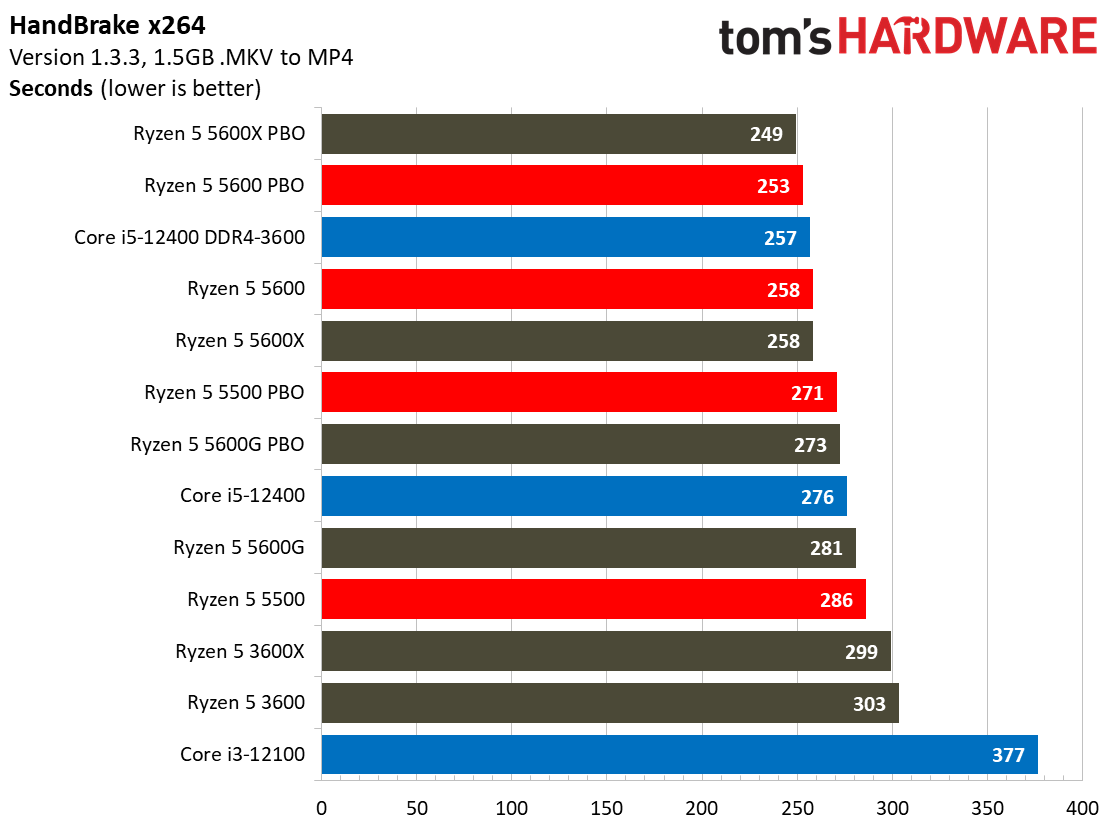
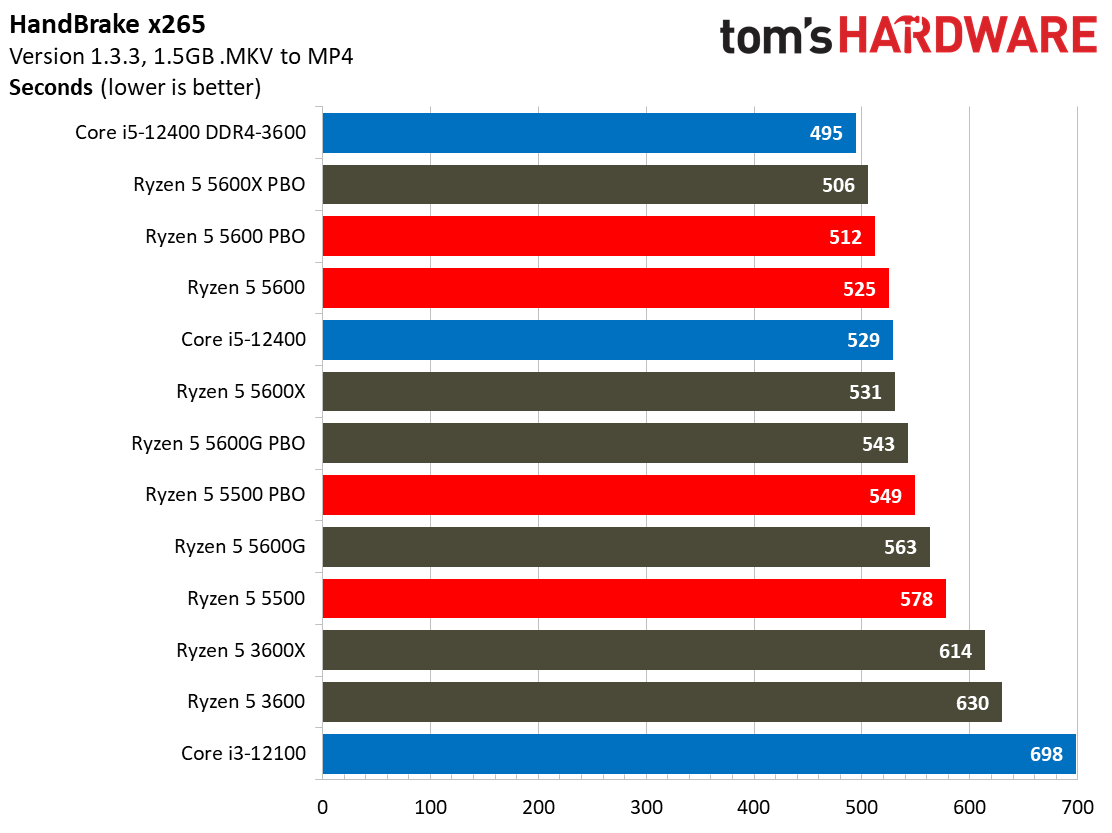
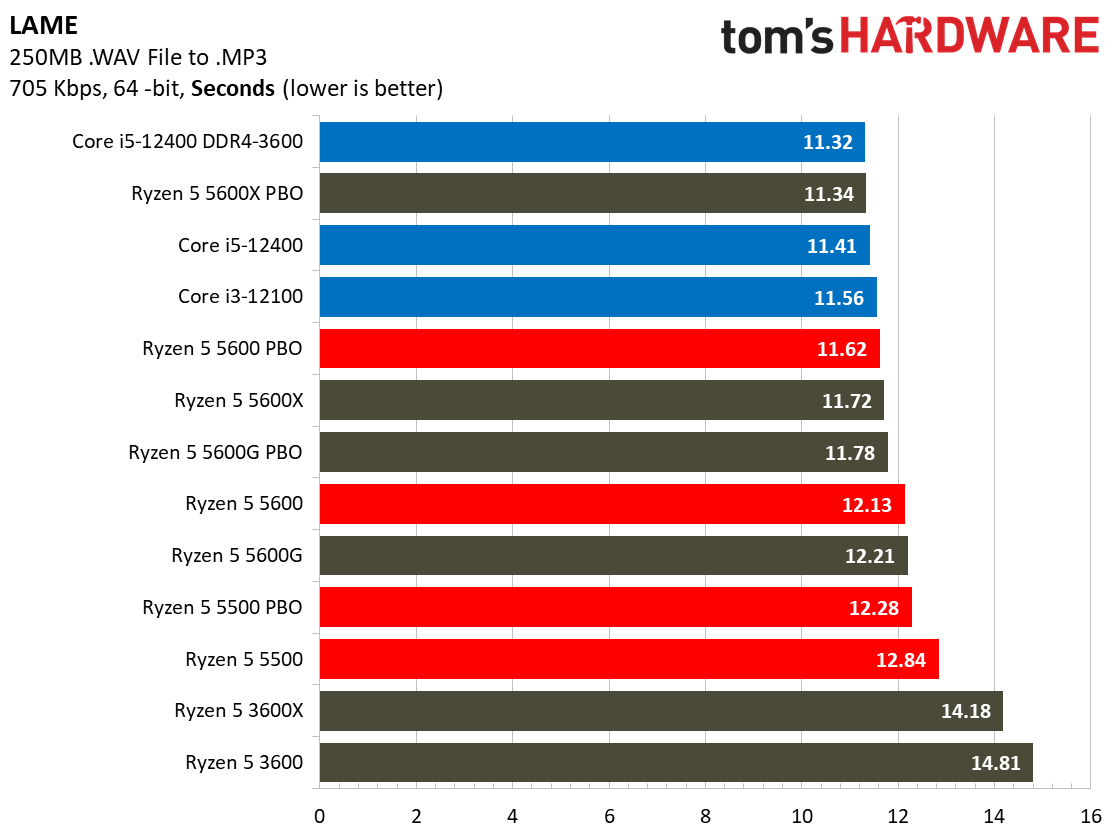
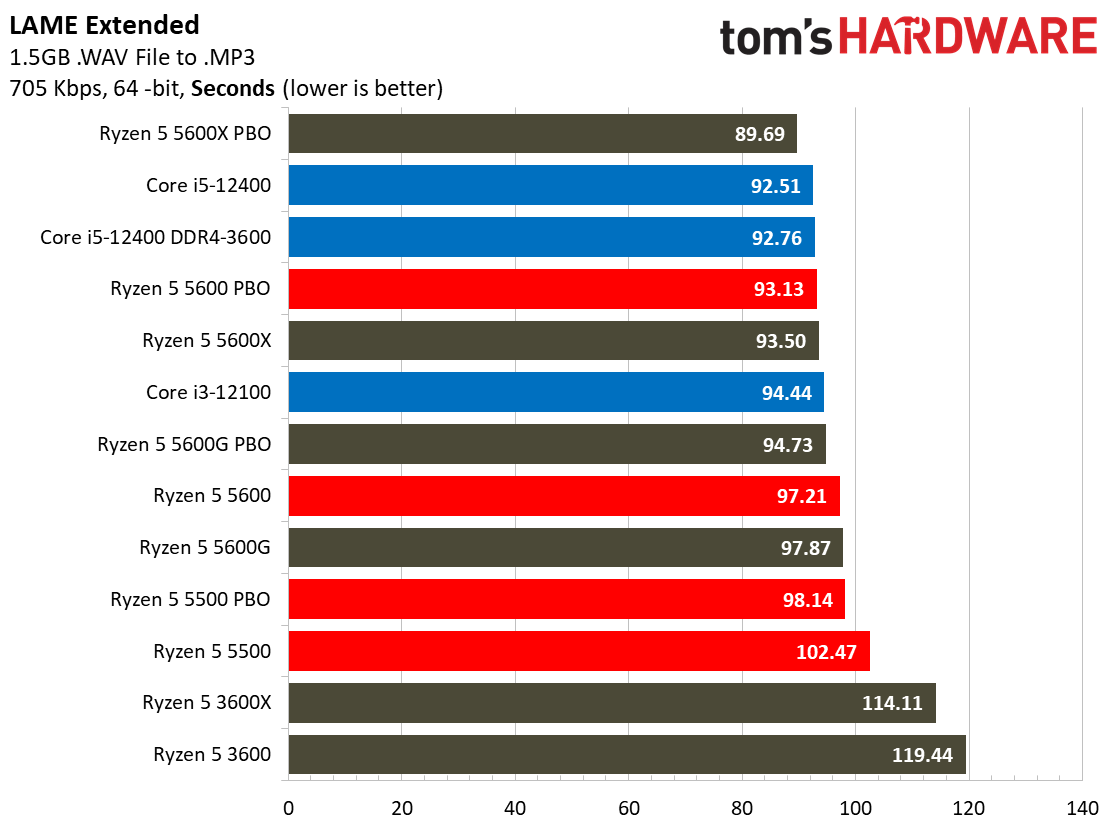
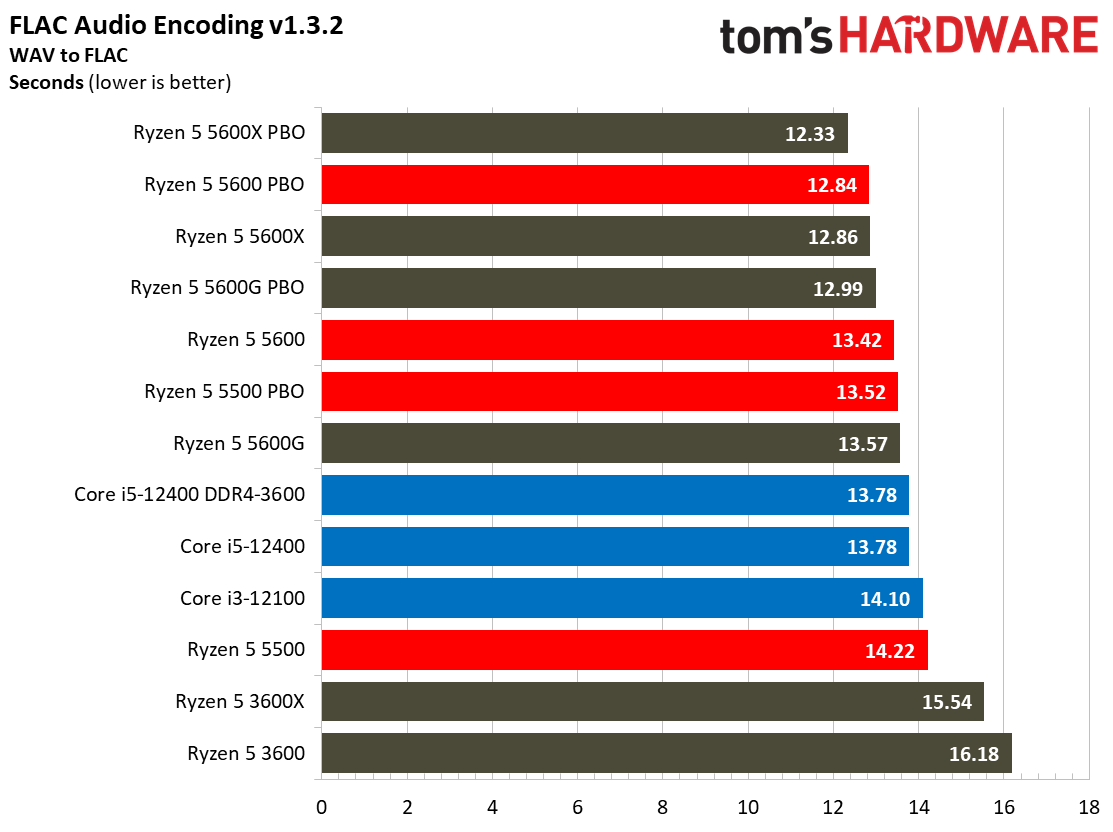
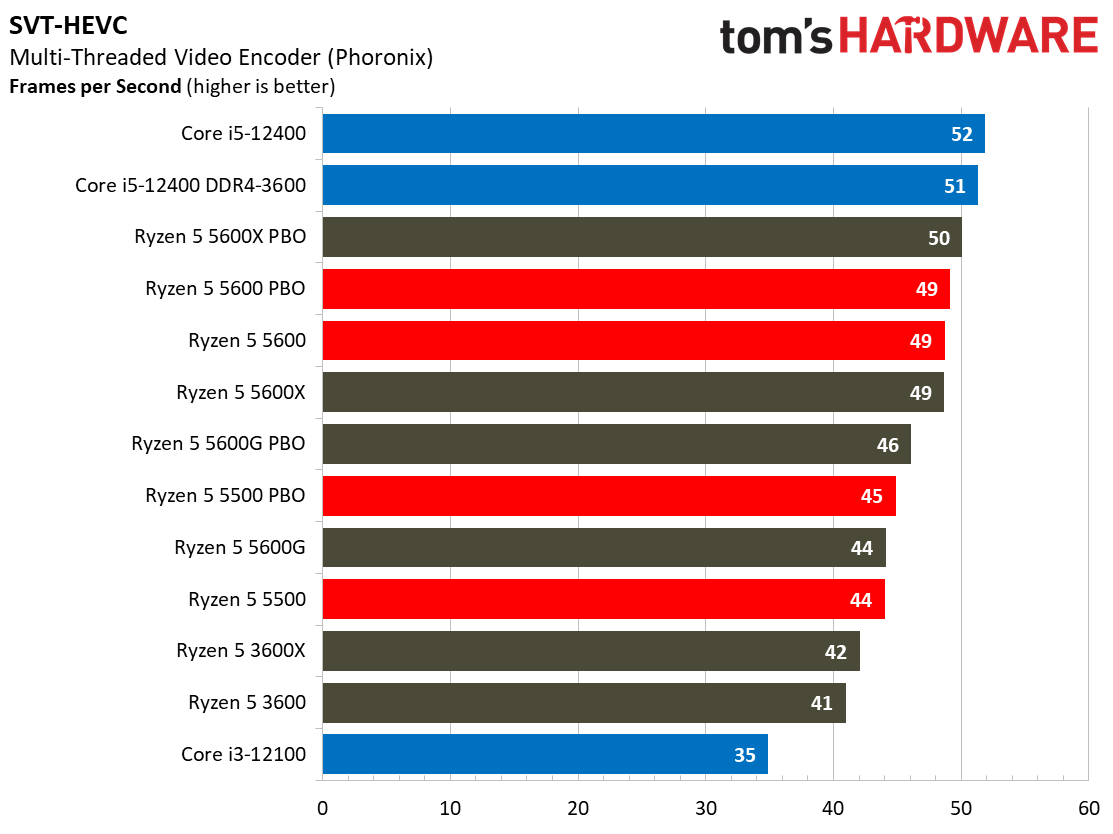
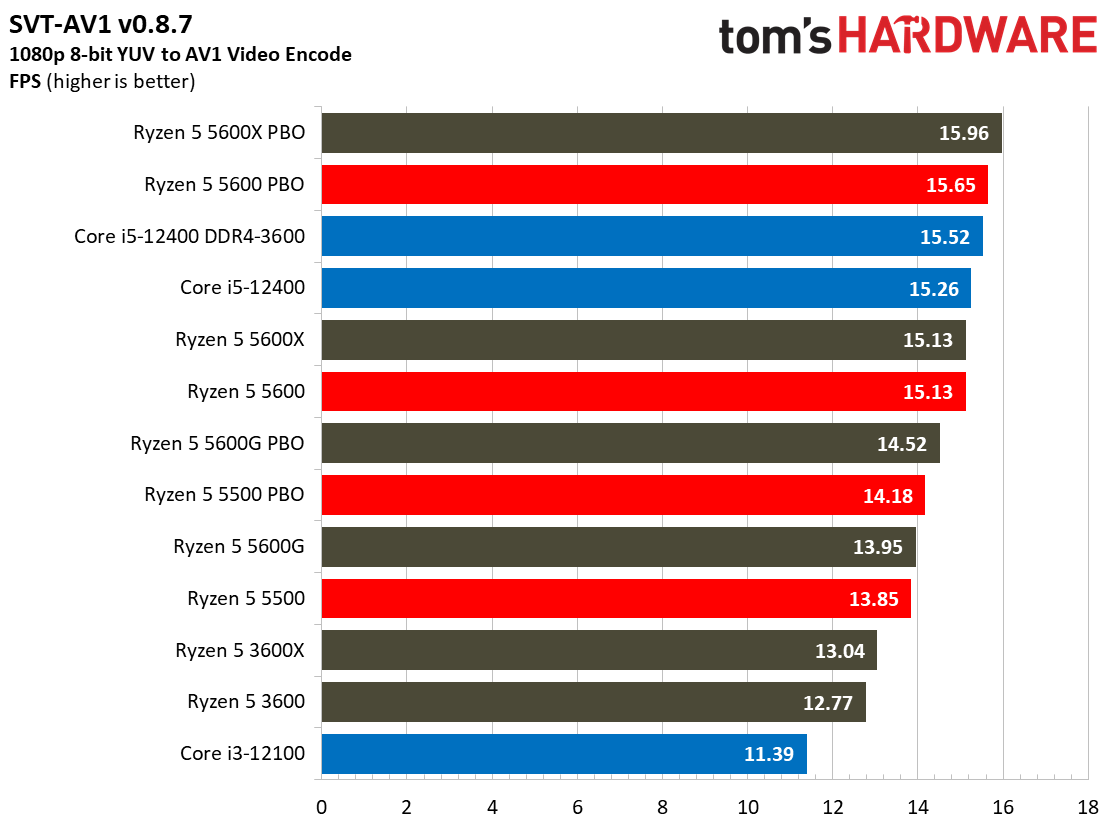
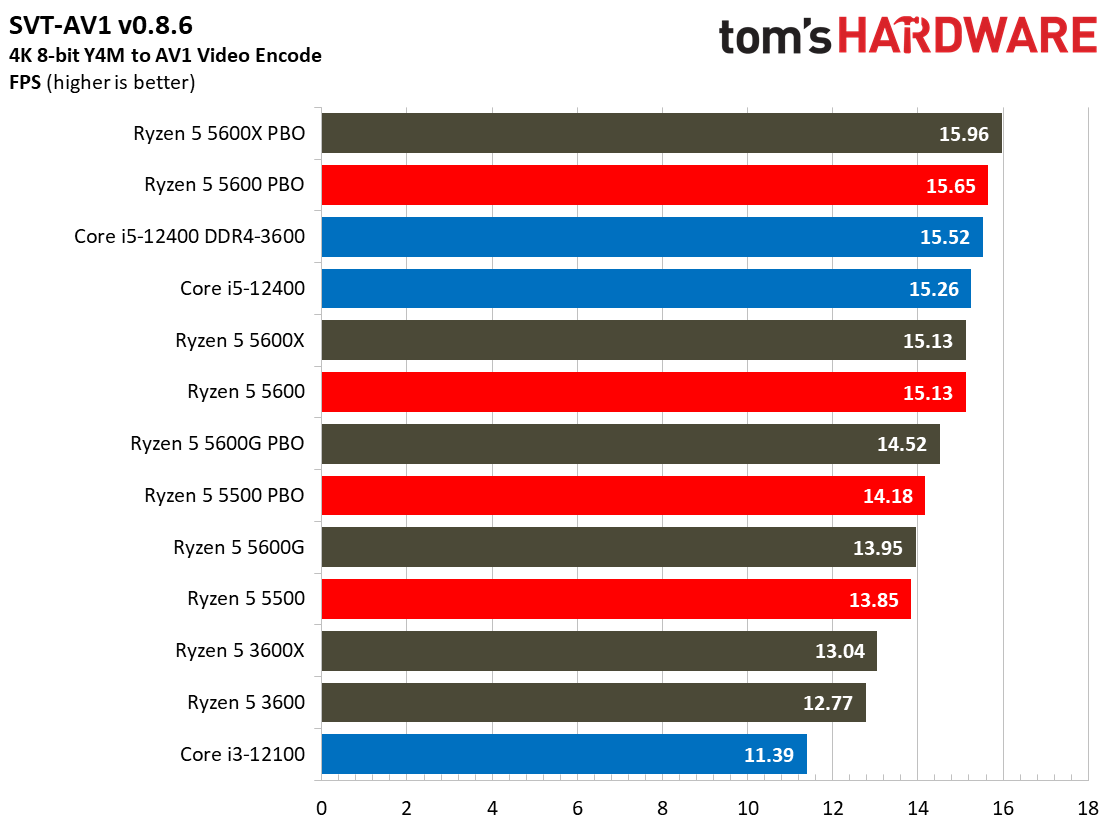
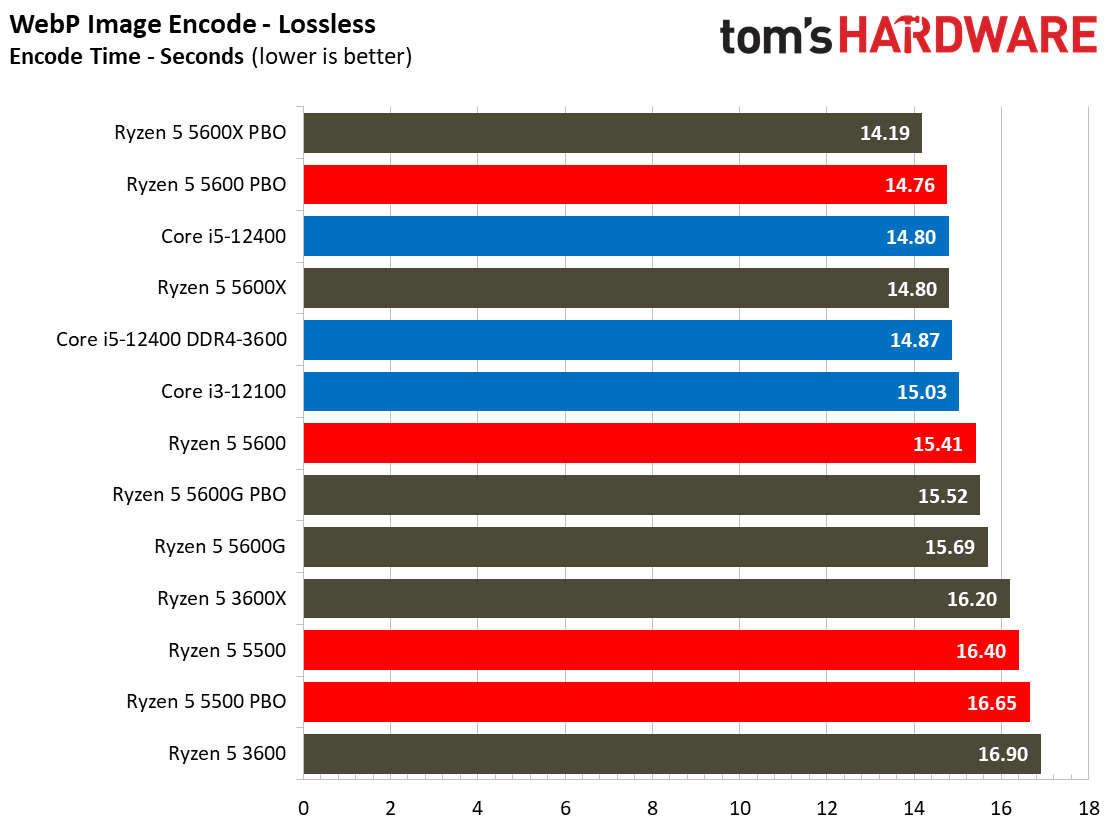
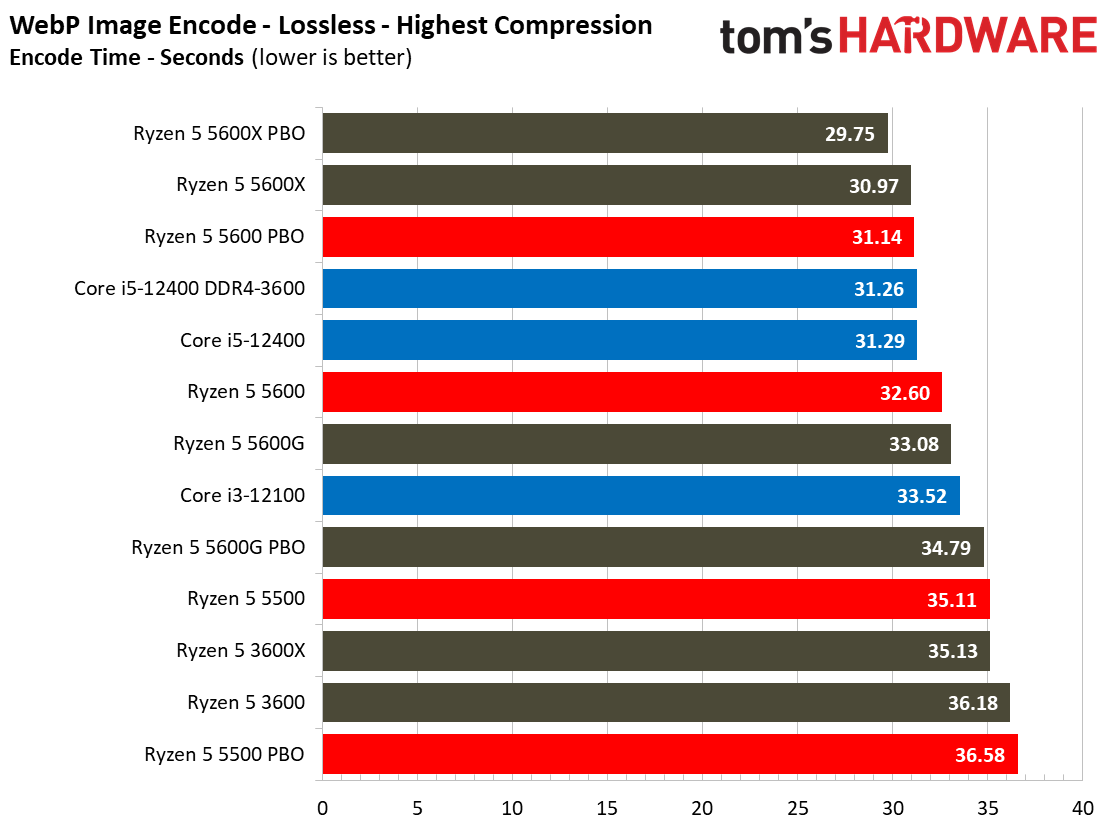
Encoders can be either heavily threaded or almost exclusively single-threaded — there certainly doesn't seem to be a middle ground.
The HandBrake transcoder is heavily threaded and uses AVX instructions to boost performance, with the x265 version featuring a heavier distribution of SIMD instructions than the x264 version. The Core i5-12400 and the Ryzen 5 5600 are closely matched in x265, which naturally plays to Intel's strength in AVX work, but the 5600 pulls ahead slightly in x264.
Turning to the single-threaded LAME benchmark finds the Intel processors leveraging their generally higher IPC and clock rates to take the lead, while the Ryzen 5 5600 takes the lead in the FLAC encoder.
Overall, you'll find the 12400 or the 5600 jockeying for the lead in this selection of workloads, but the Ryzen 5 5500 easily beats the Core i3-12100 due to its higher core and thread count.
Get Tom's Hardware's best news and in-depth reviews, straight to your inbox.
Adobe Premiere Pro, Photoshop, and Lightroom on AMD Ryzen 5 5600 and 5500
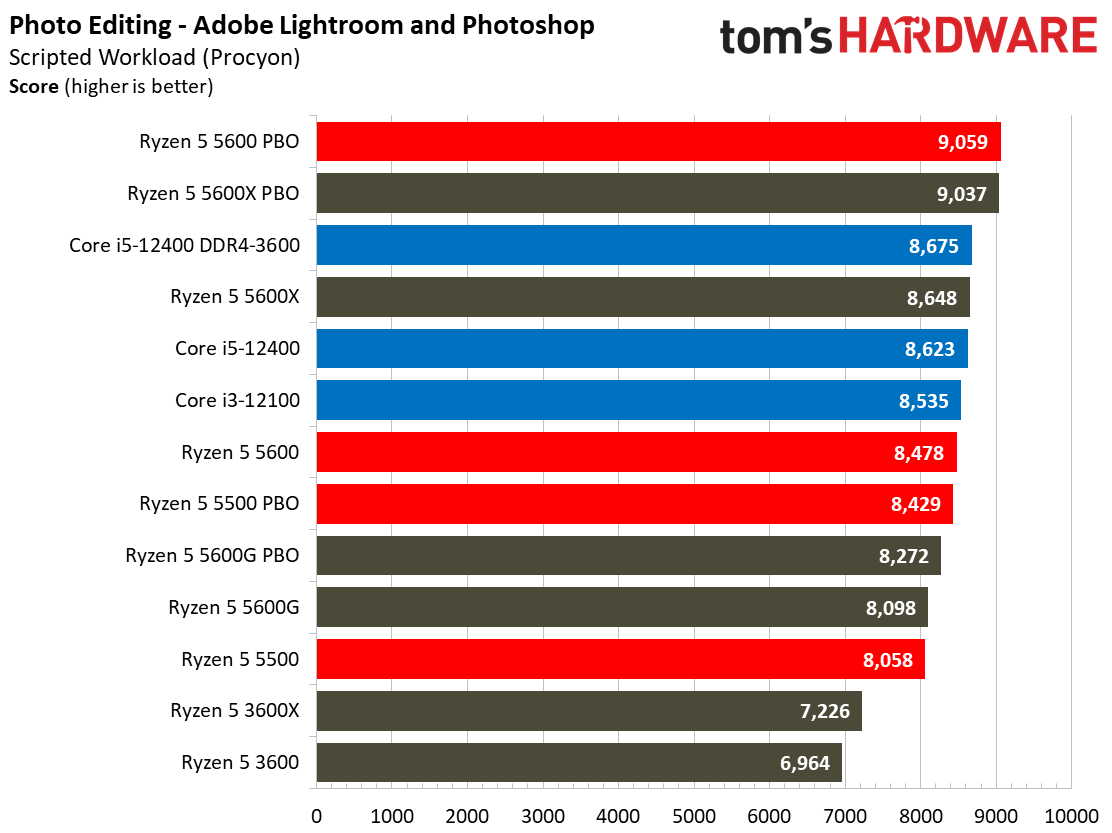
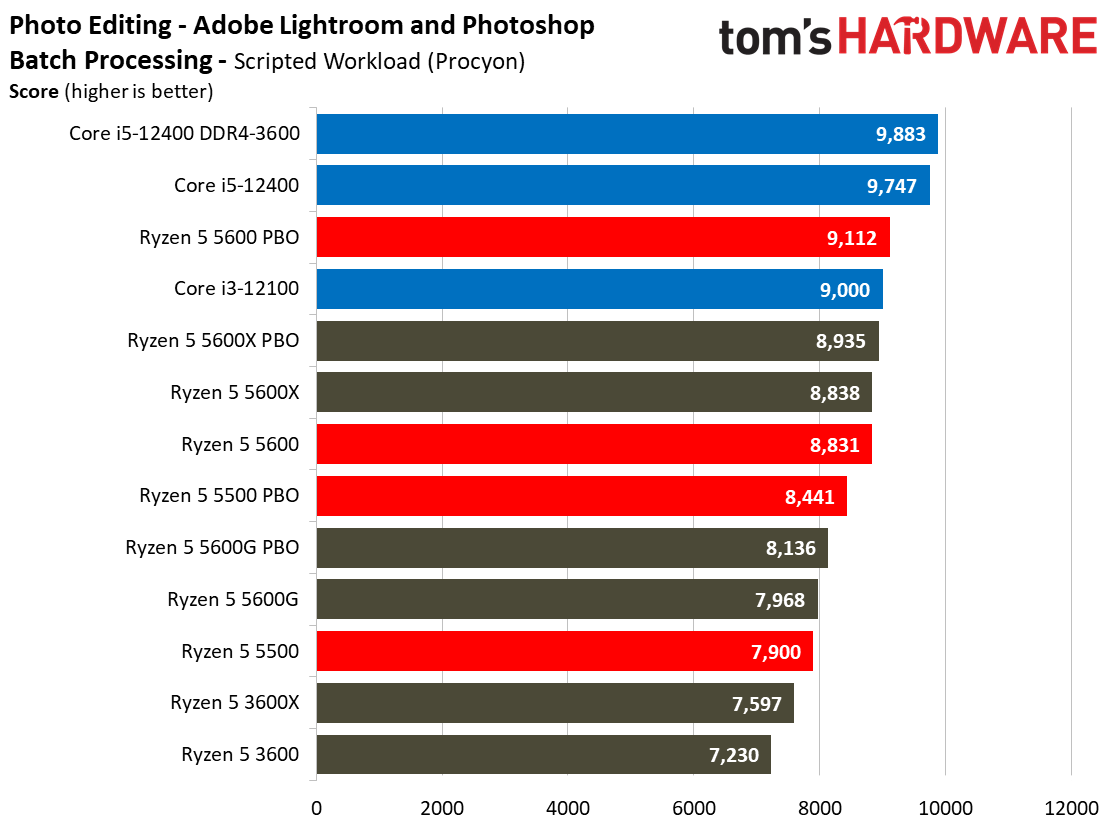
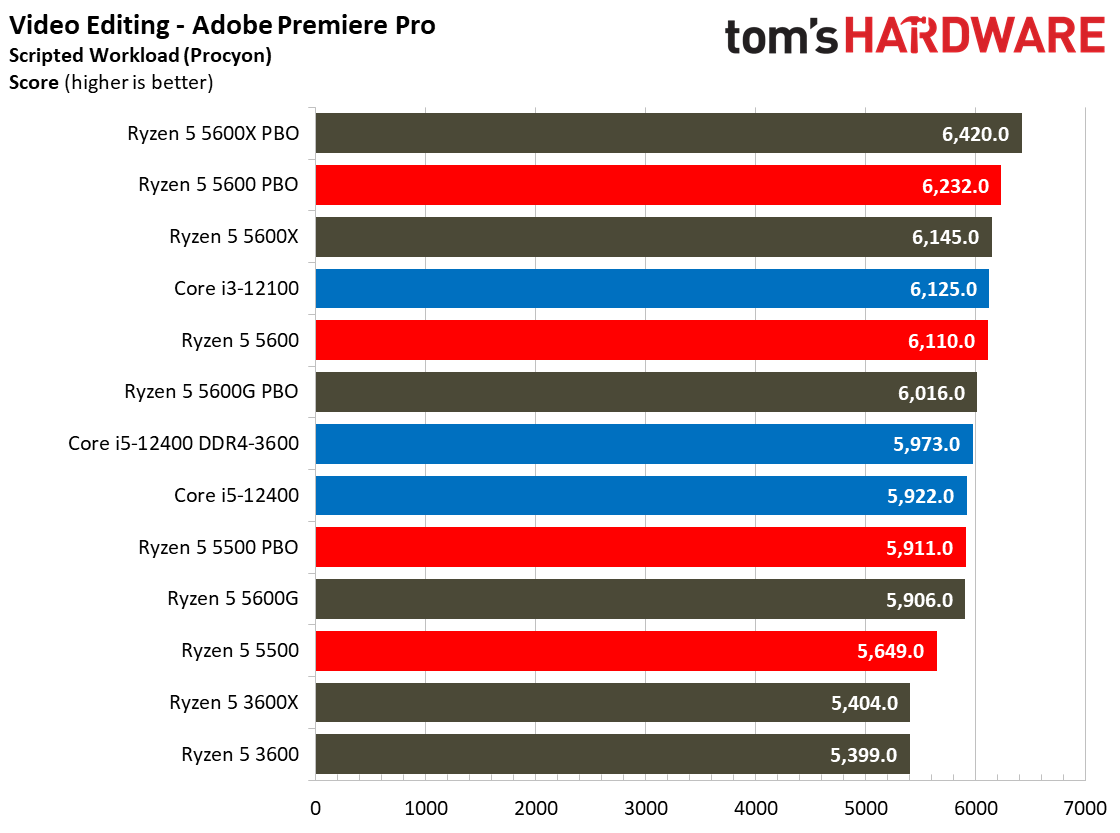
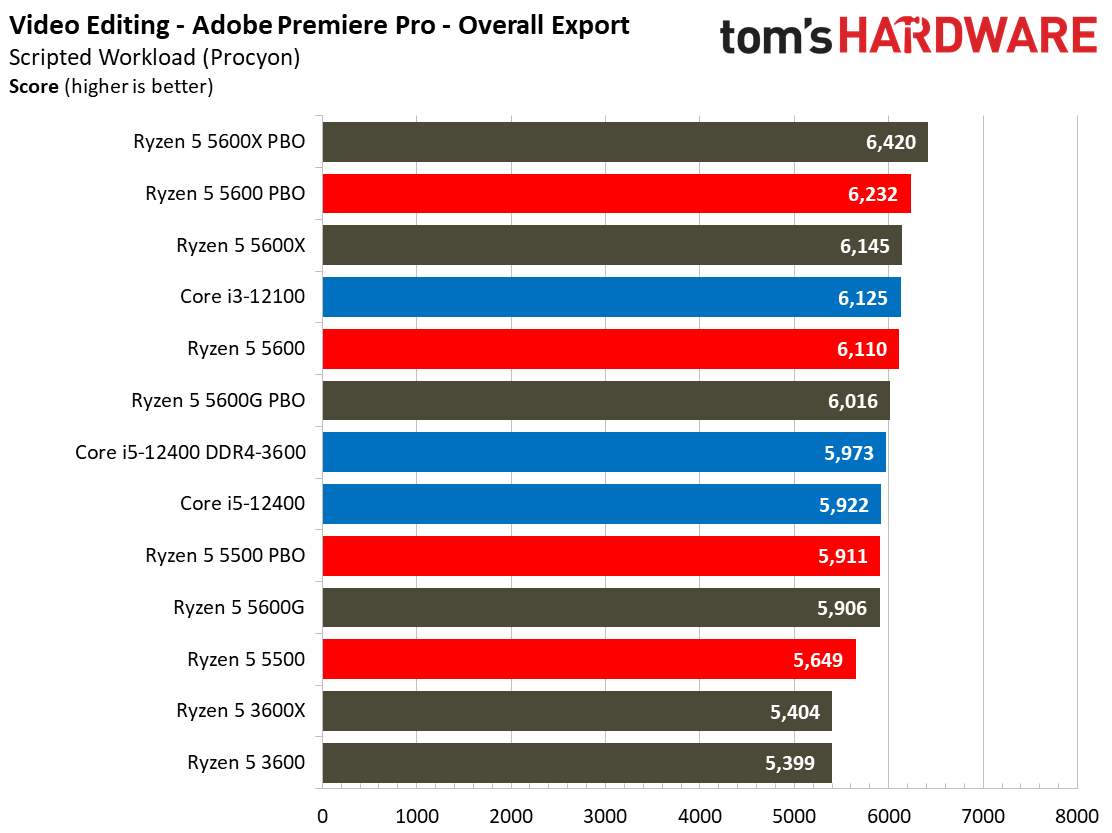
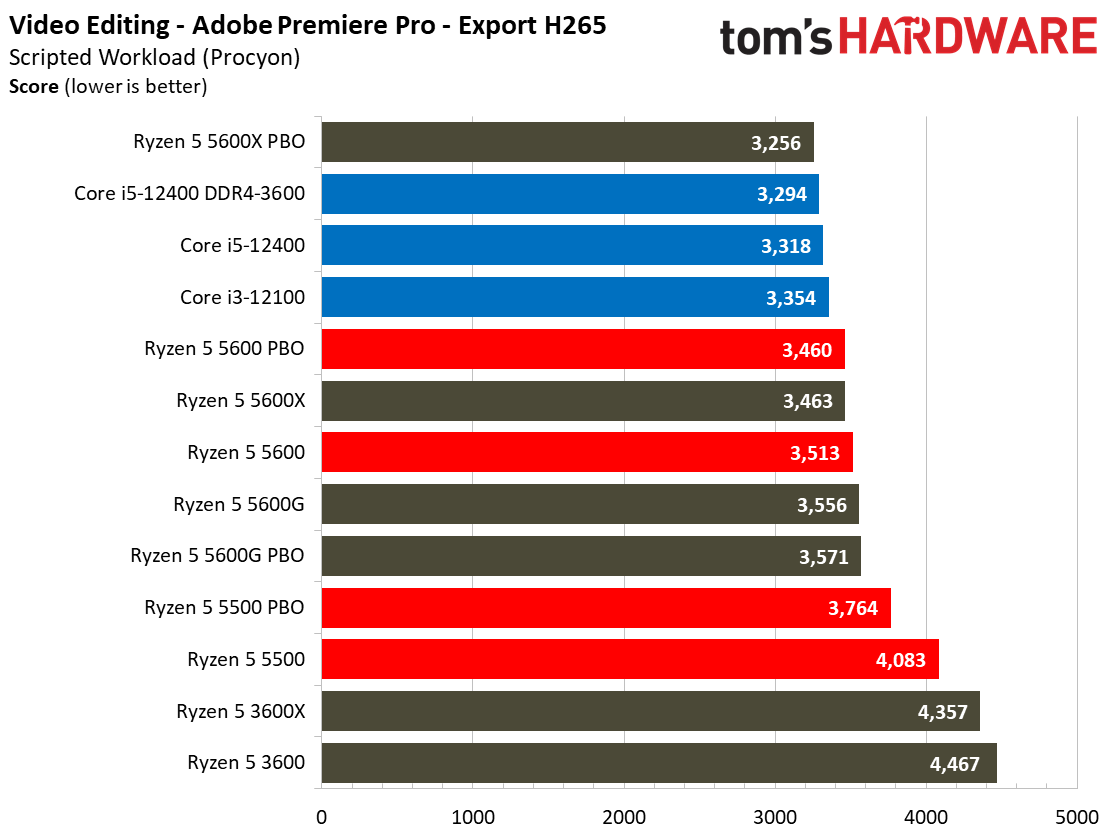
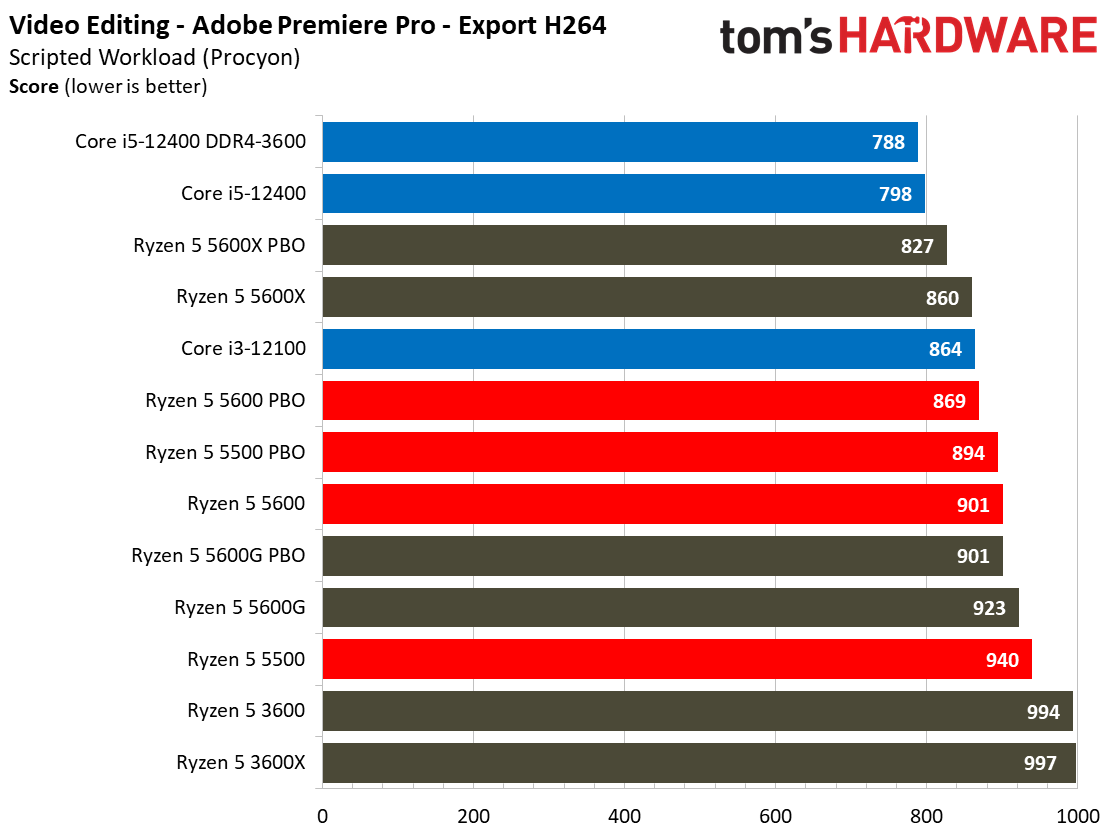
We've integrated the UL Benchmarks Procyon tests into our suite to replace the aging PCMark 10. This new benchmark runs complex Adobe Premiere Pro, Photoshop, and Lightroom workflows with the actual software, making for a great real-world test suite.
Web Browsing, Office and Productivity on AMD Ryzen 5 5600 and 5500
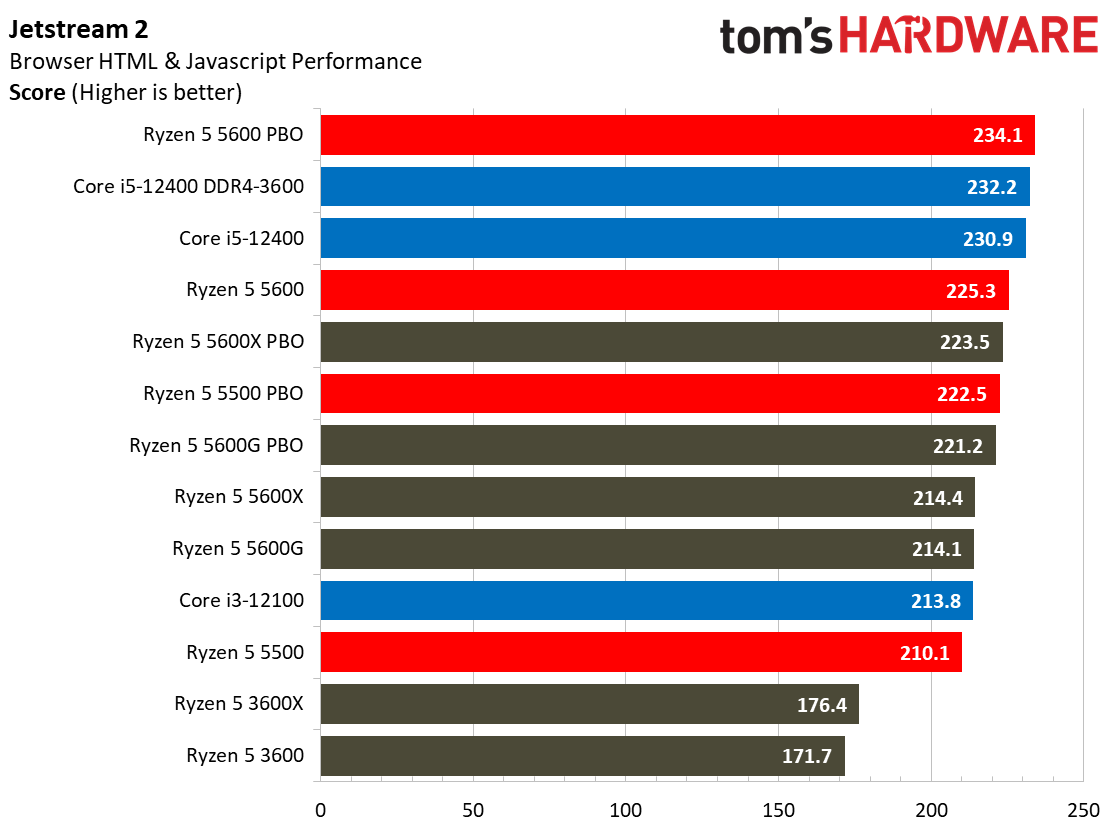
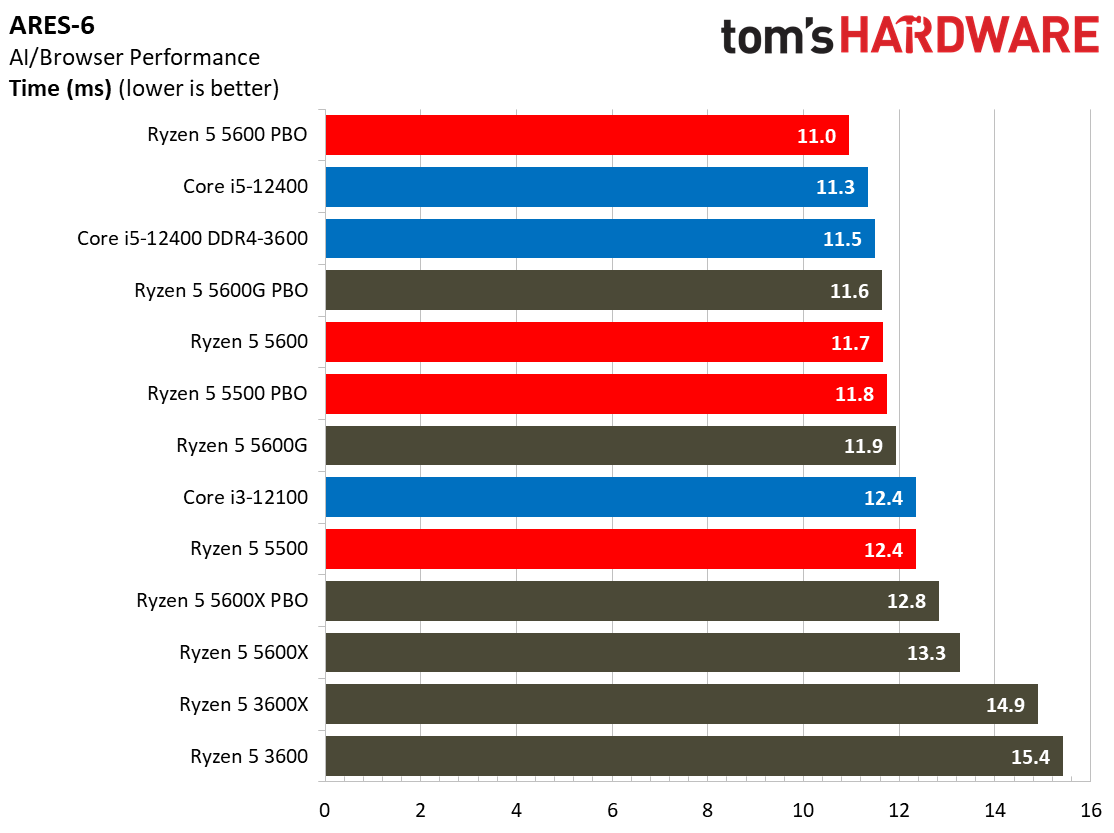
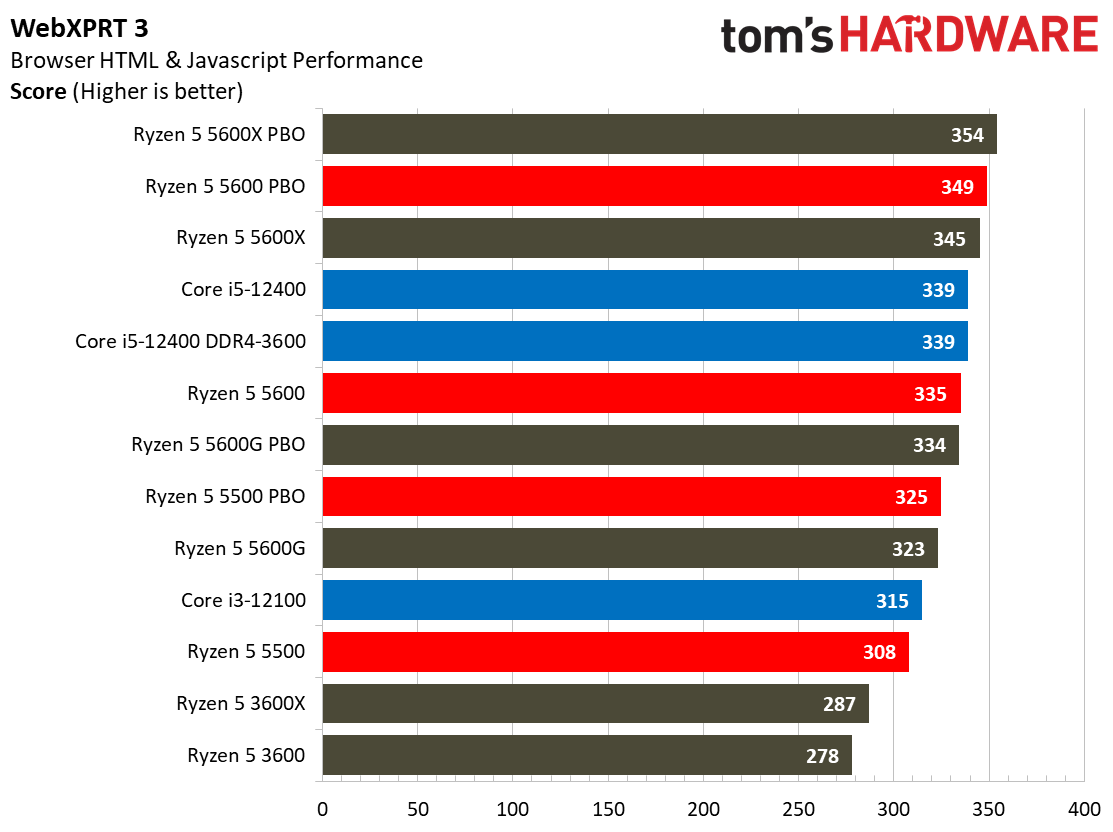
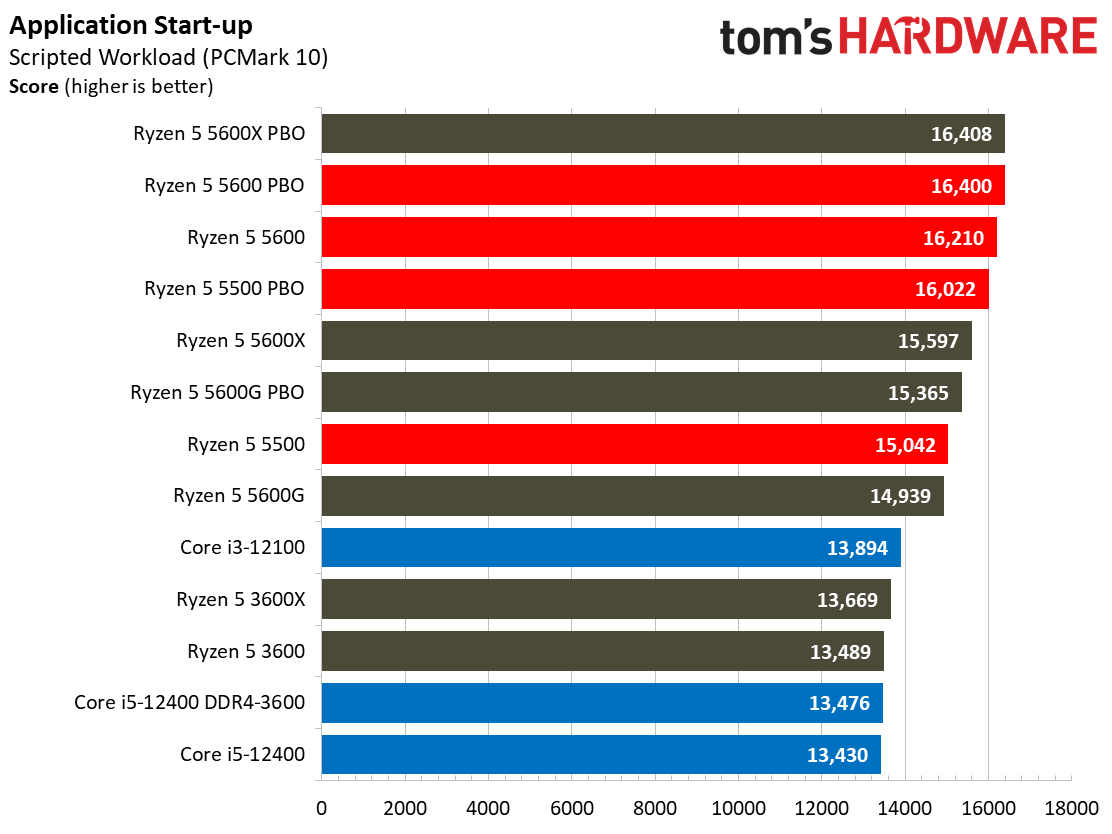
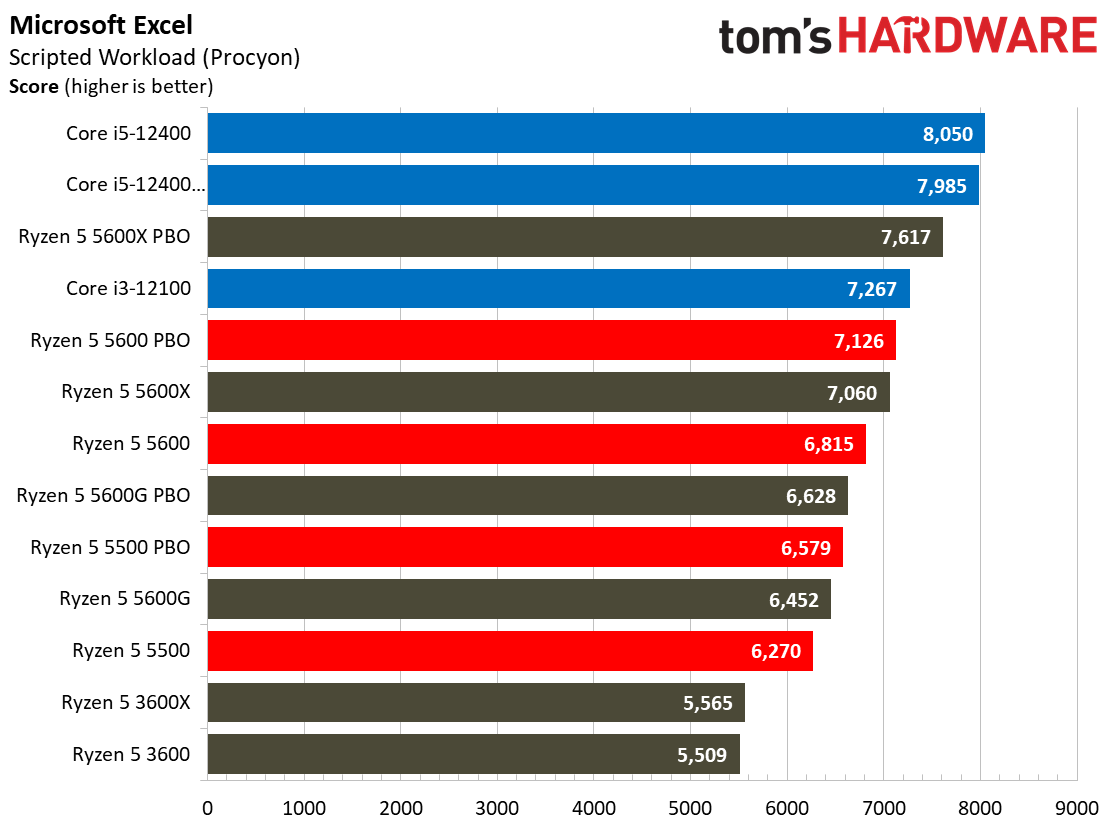
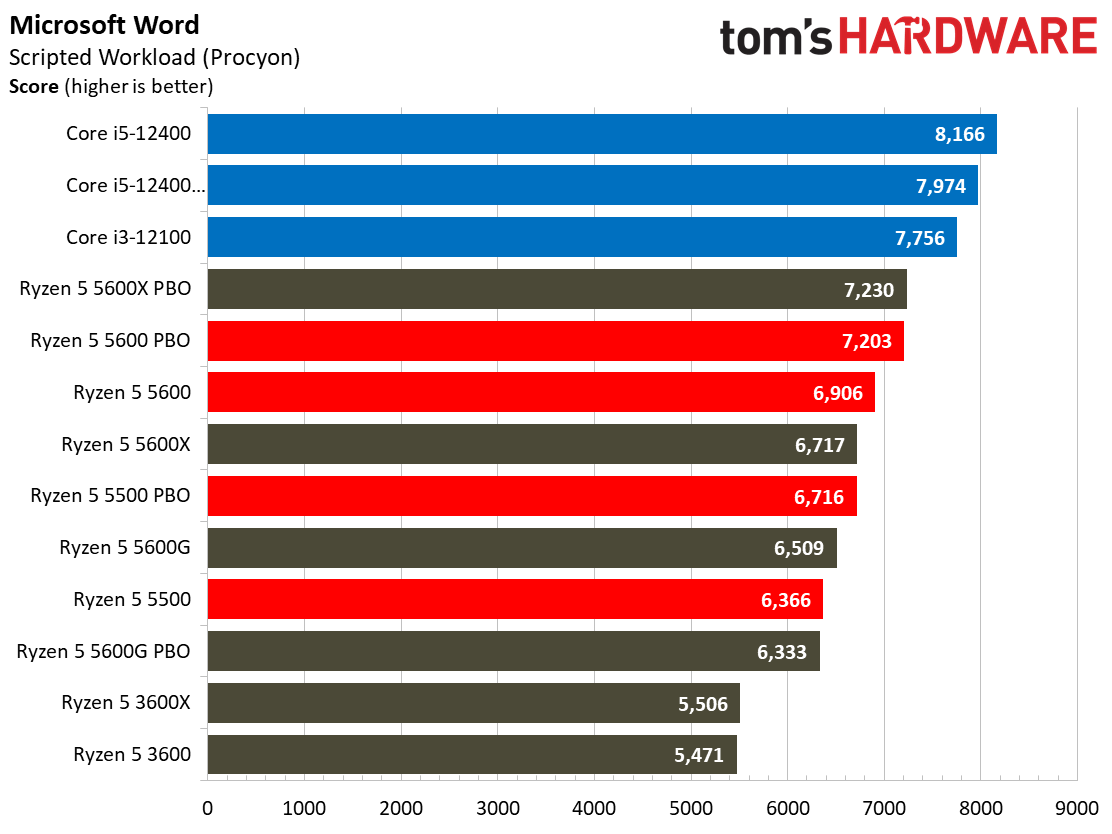
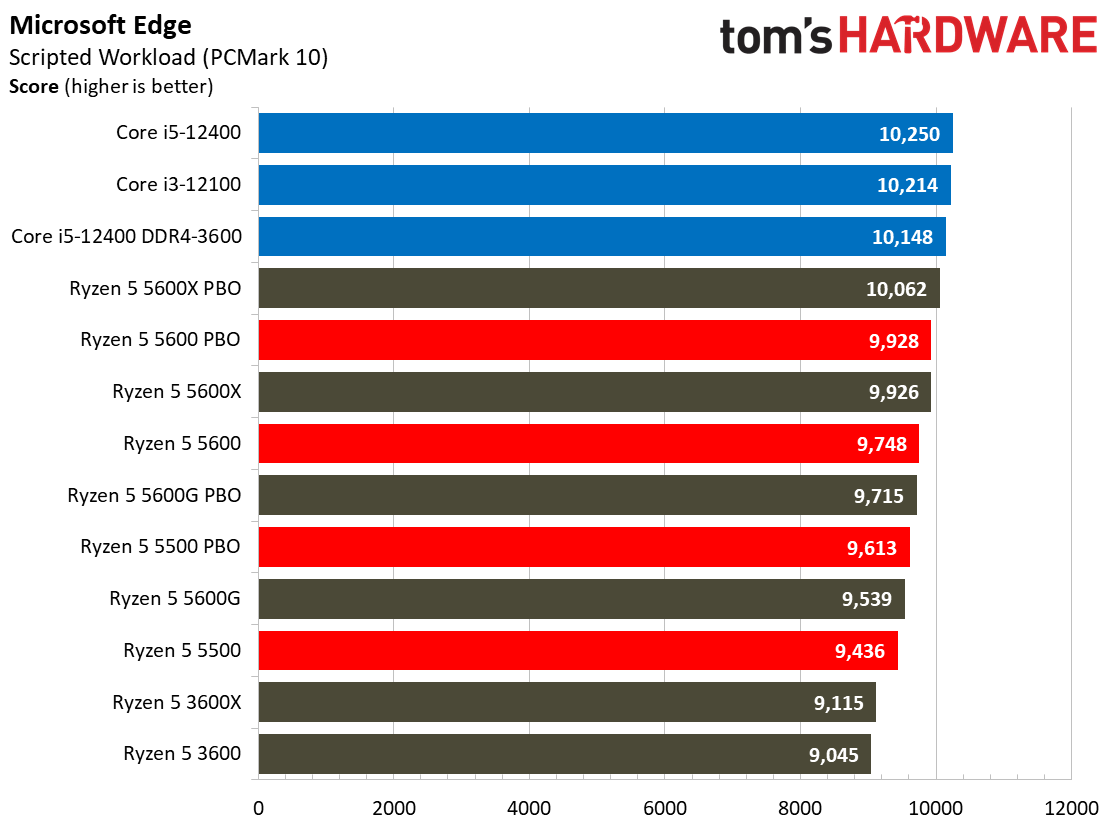
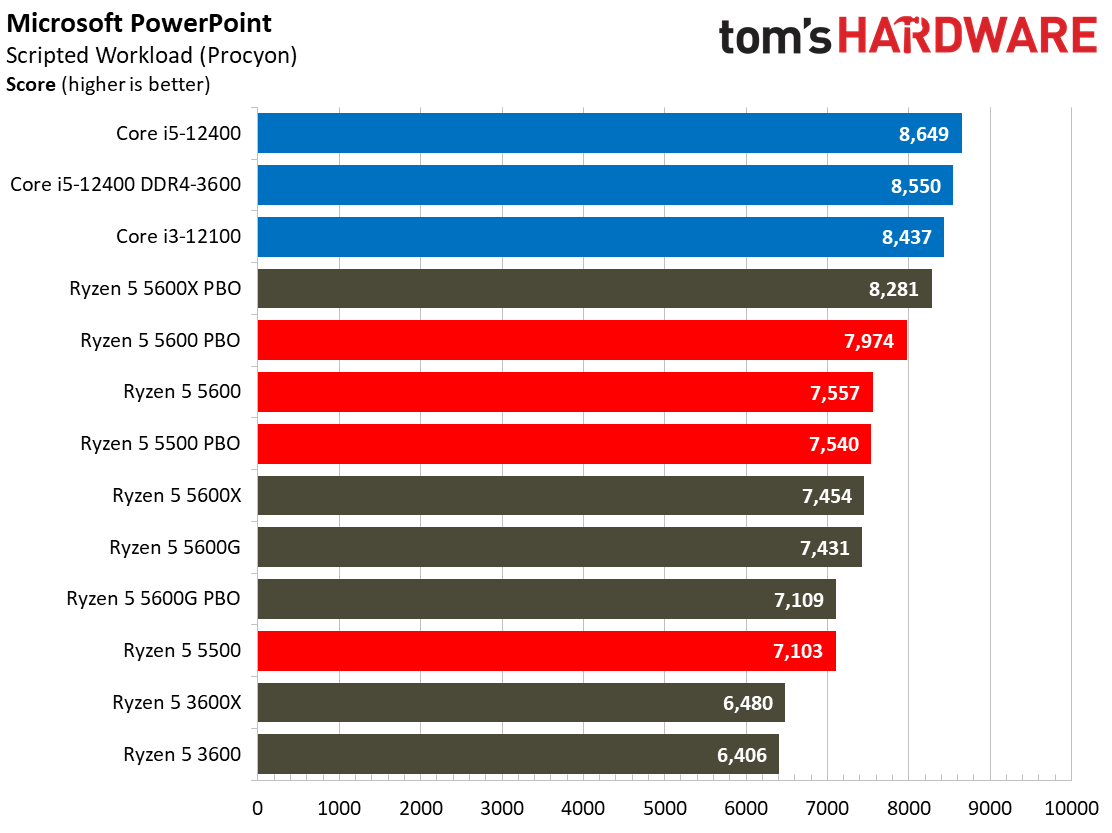
The ubiquitous web browser is one of the most frequently used applications. These tests tend to be lightly threaded, so a snappy response time is critical. We're accustomed to the Alder Lake chips running the table over competing Ryzen chips in the web browser tests, but the Ryzen 5 5600 is competitive.
Compilation, Compression, AVX Benchmarks on AMD Ryzen 5 5600 and 5500
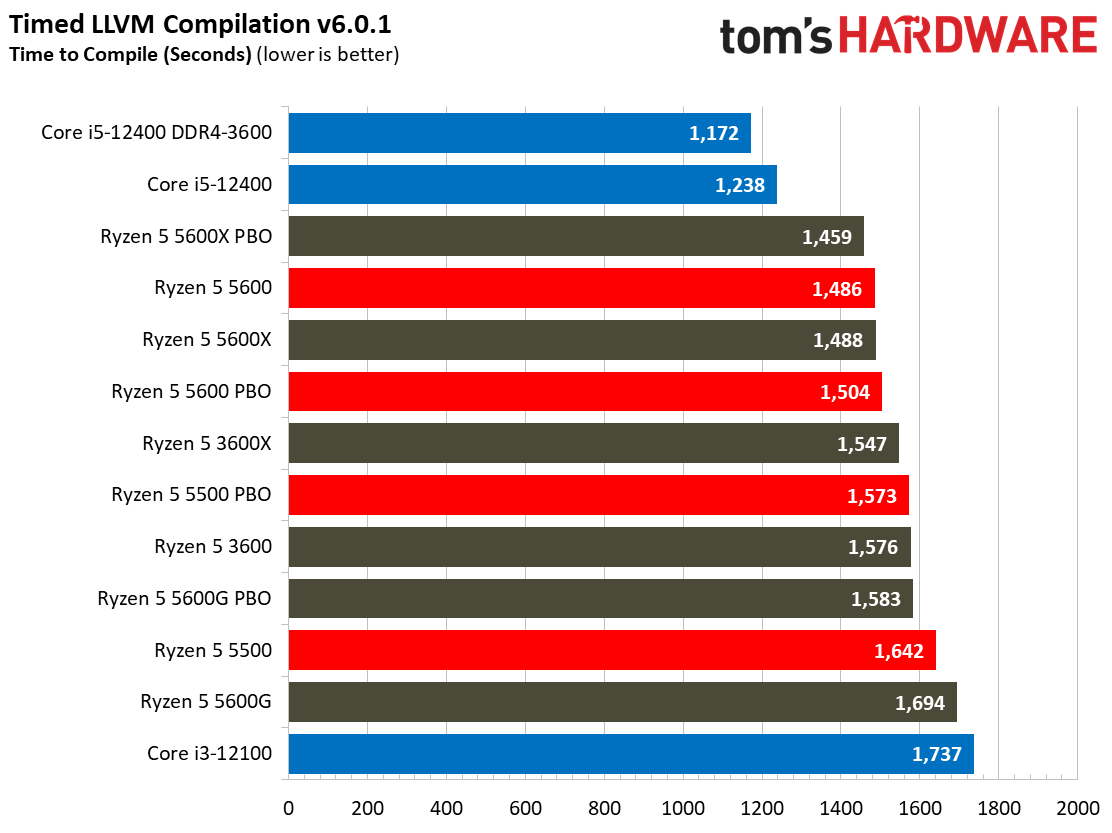
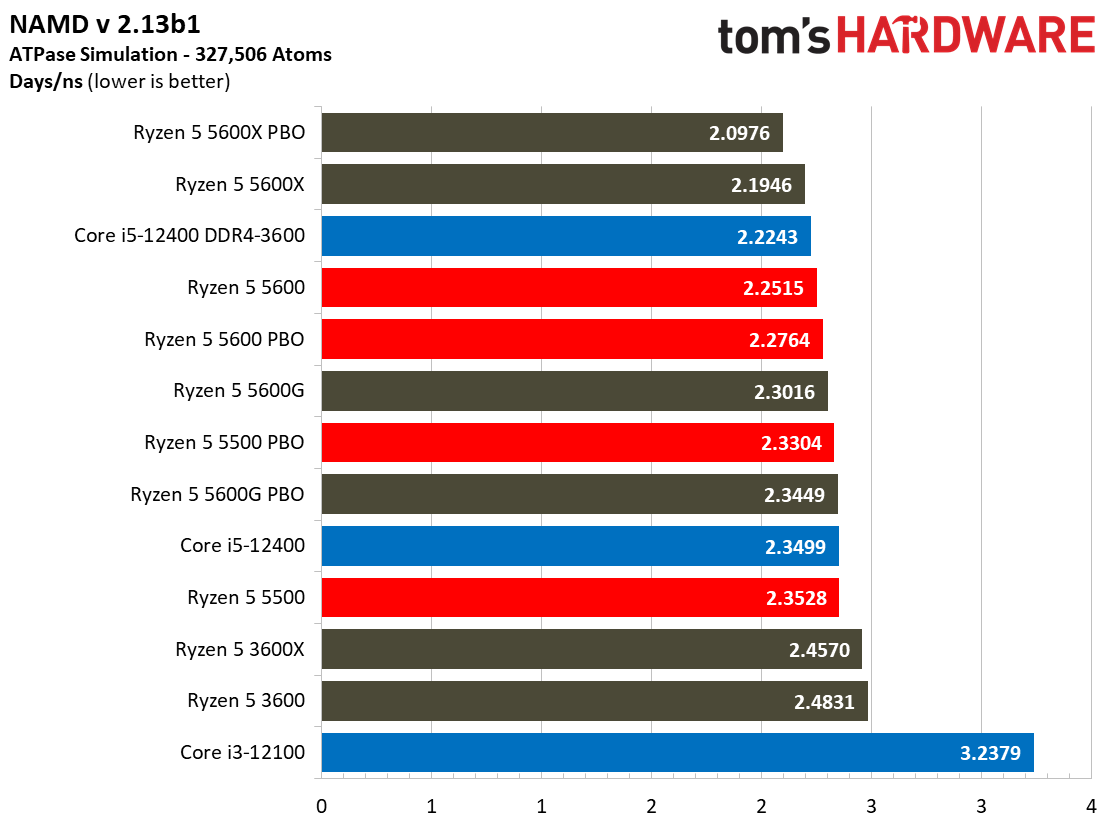
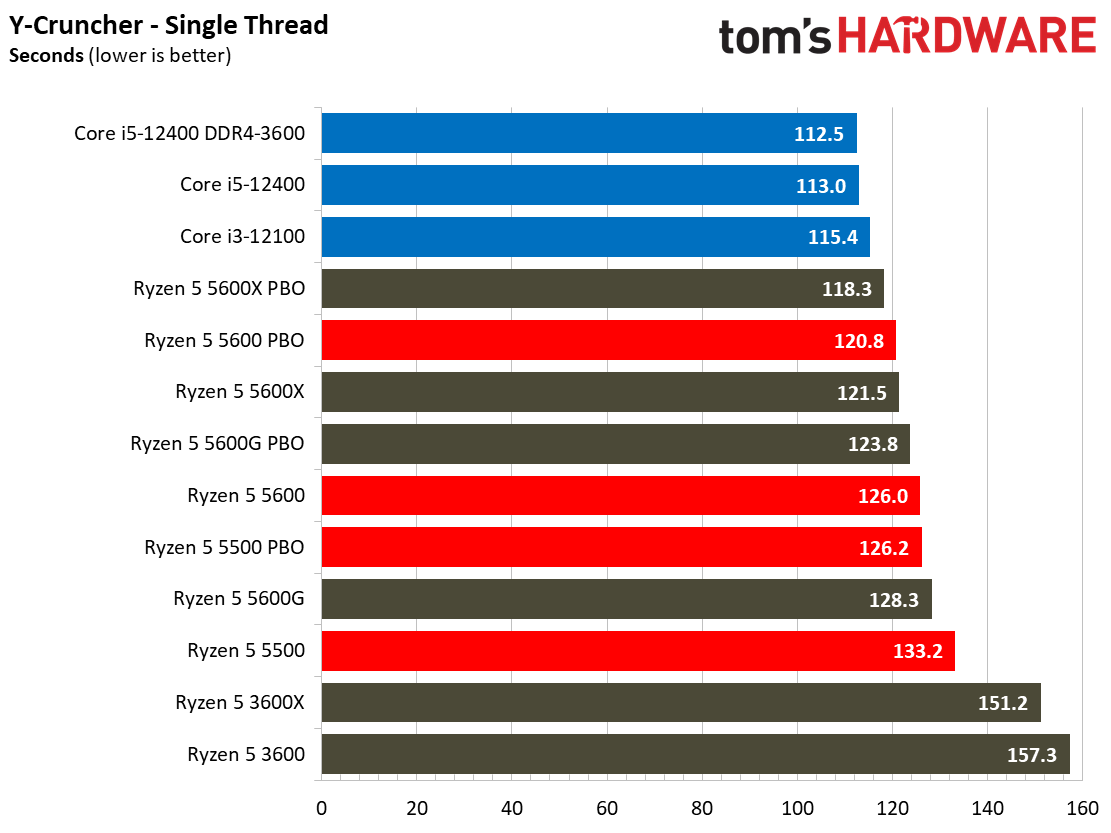
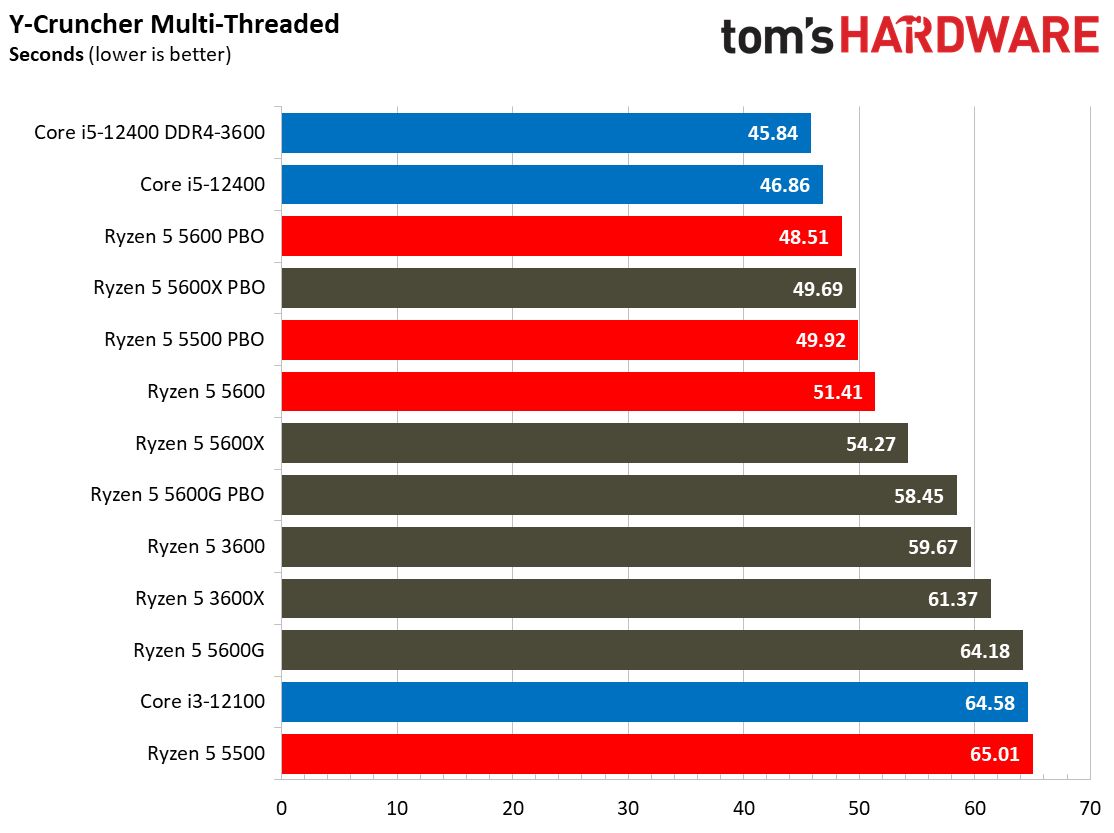
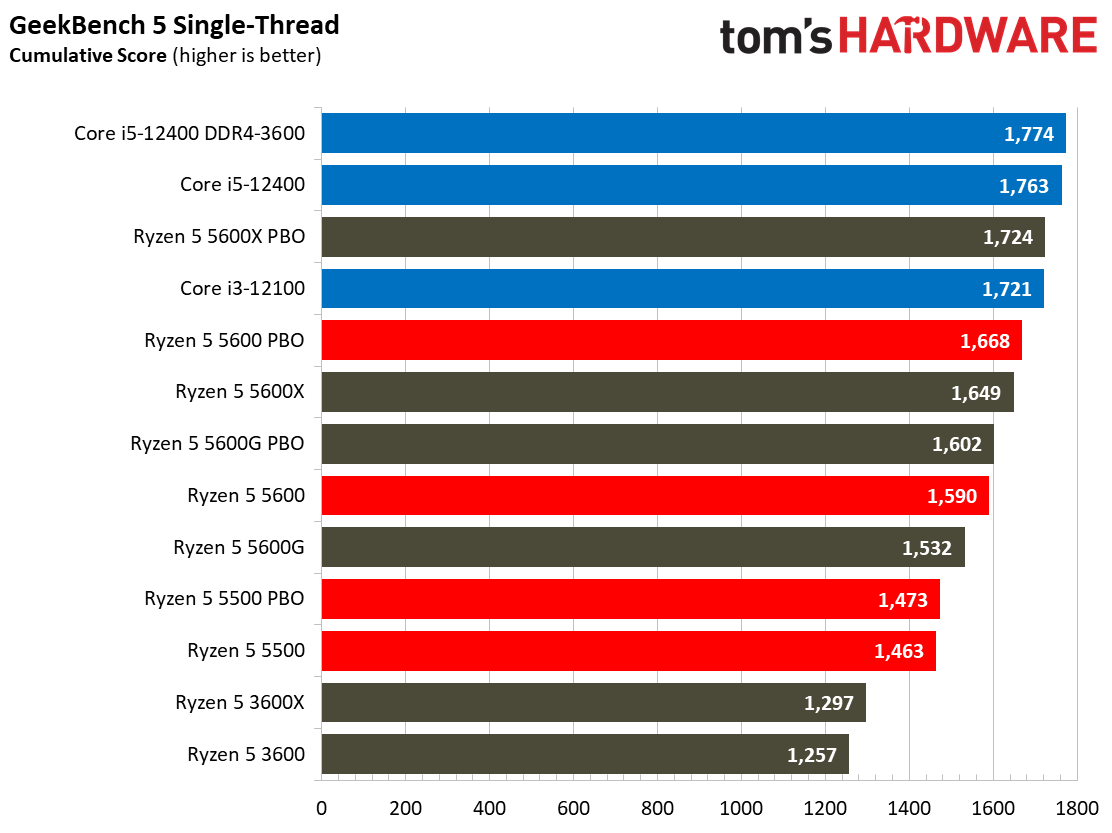
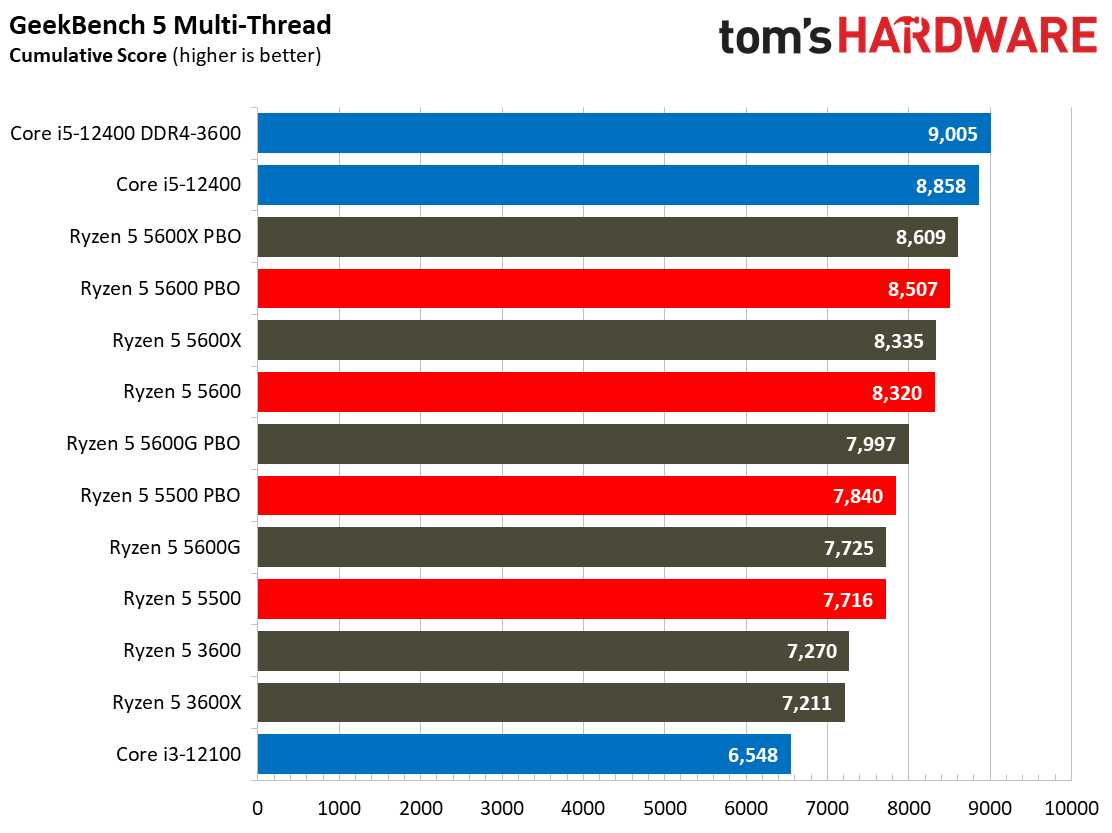
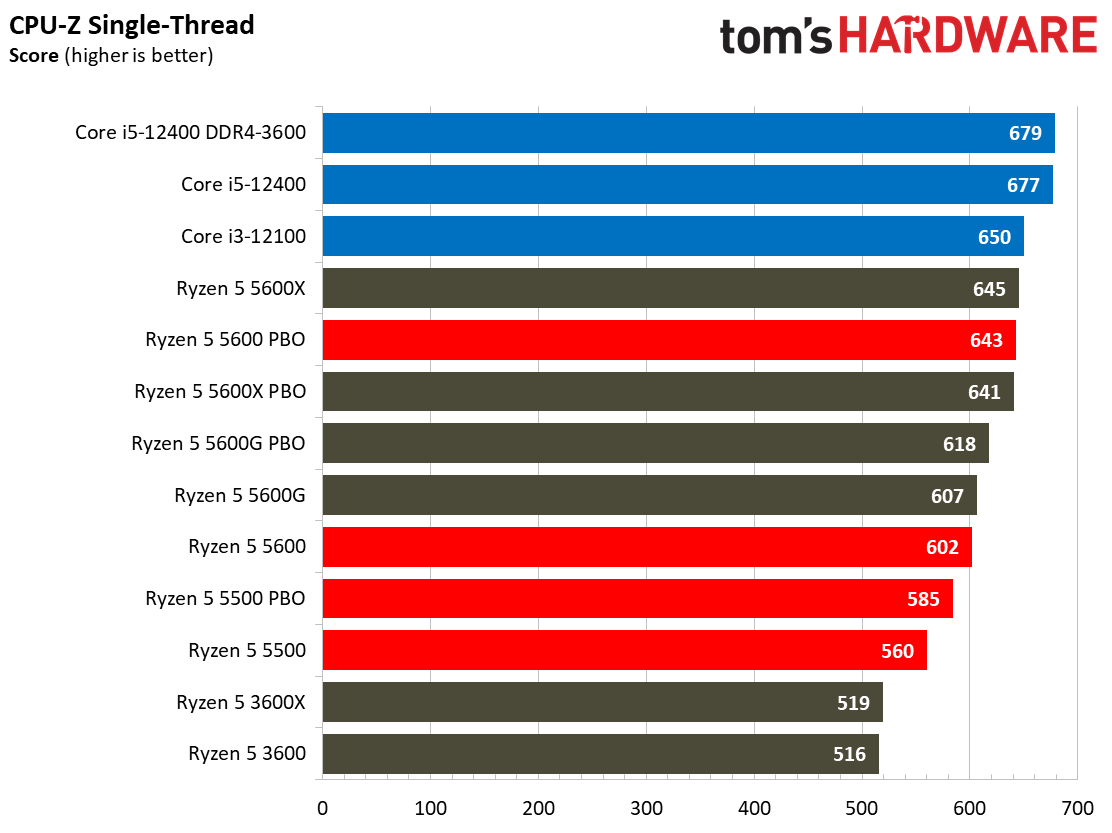
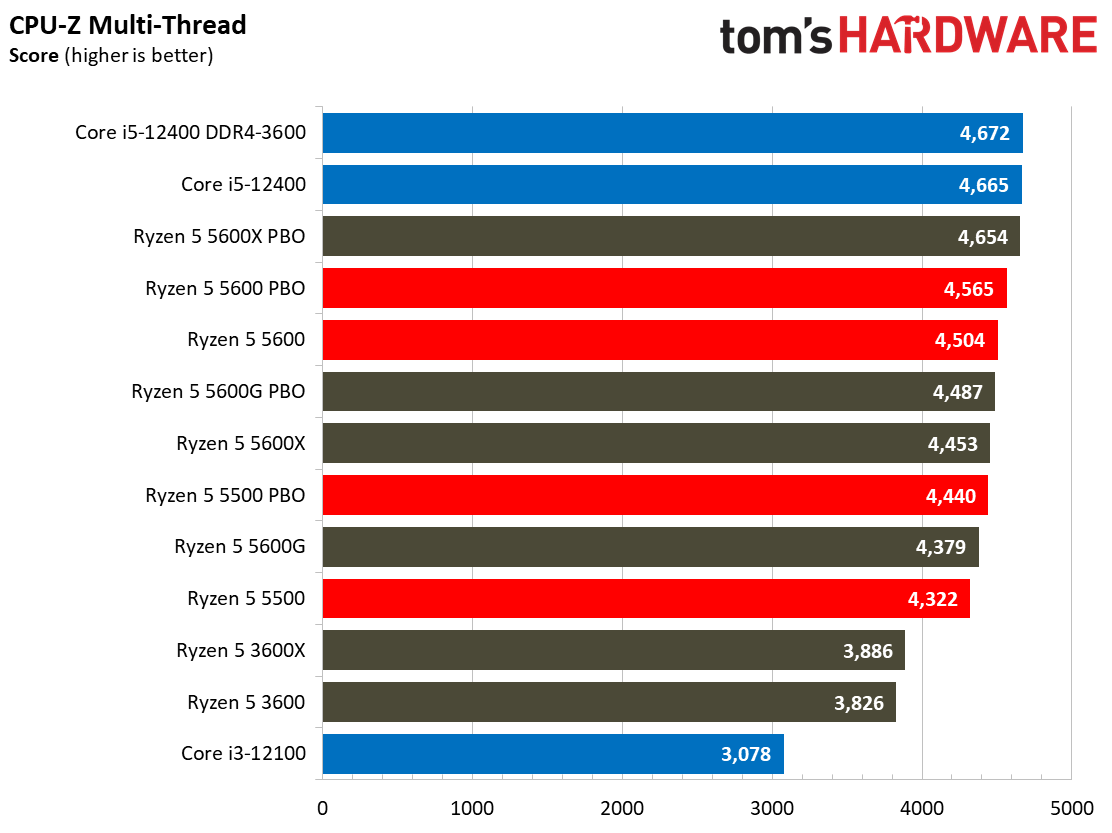
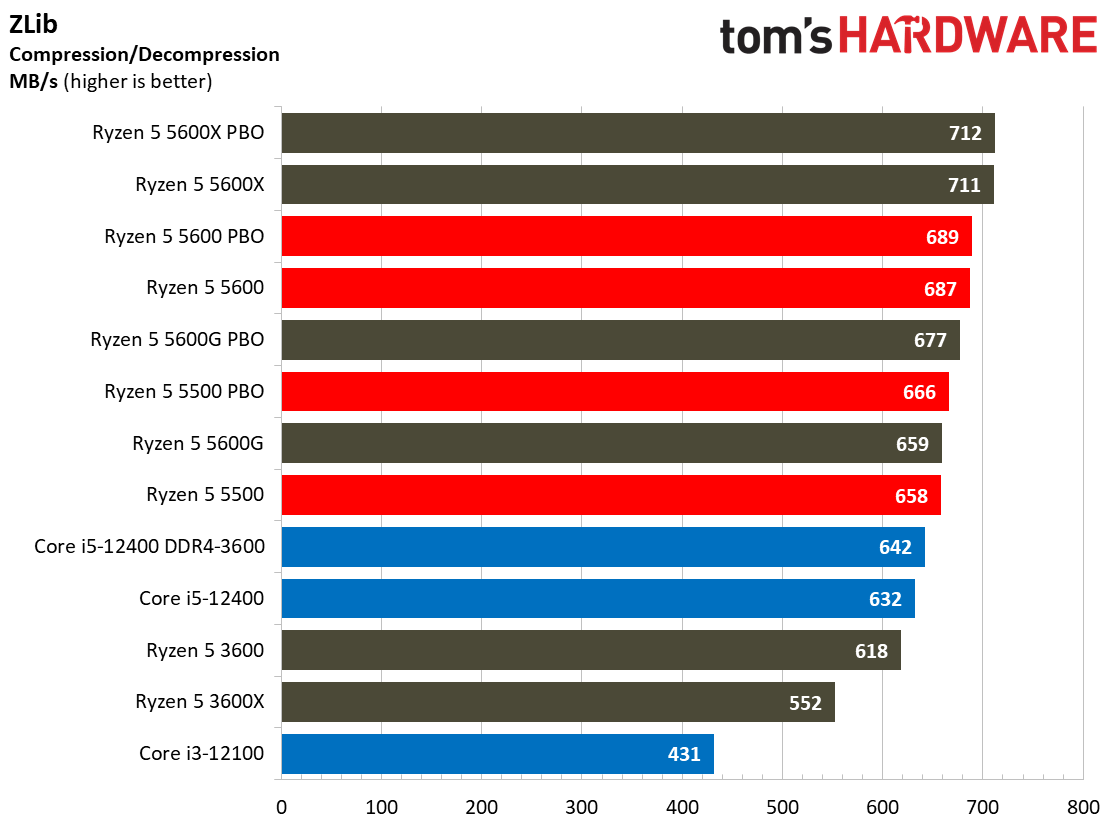
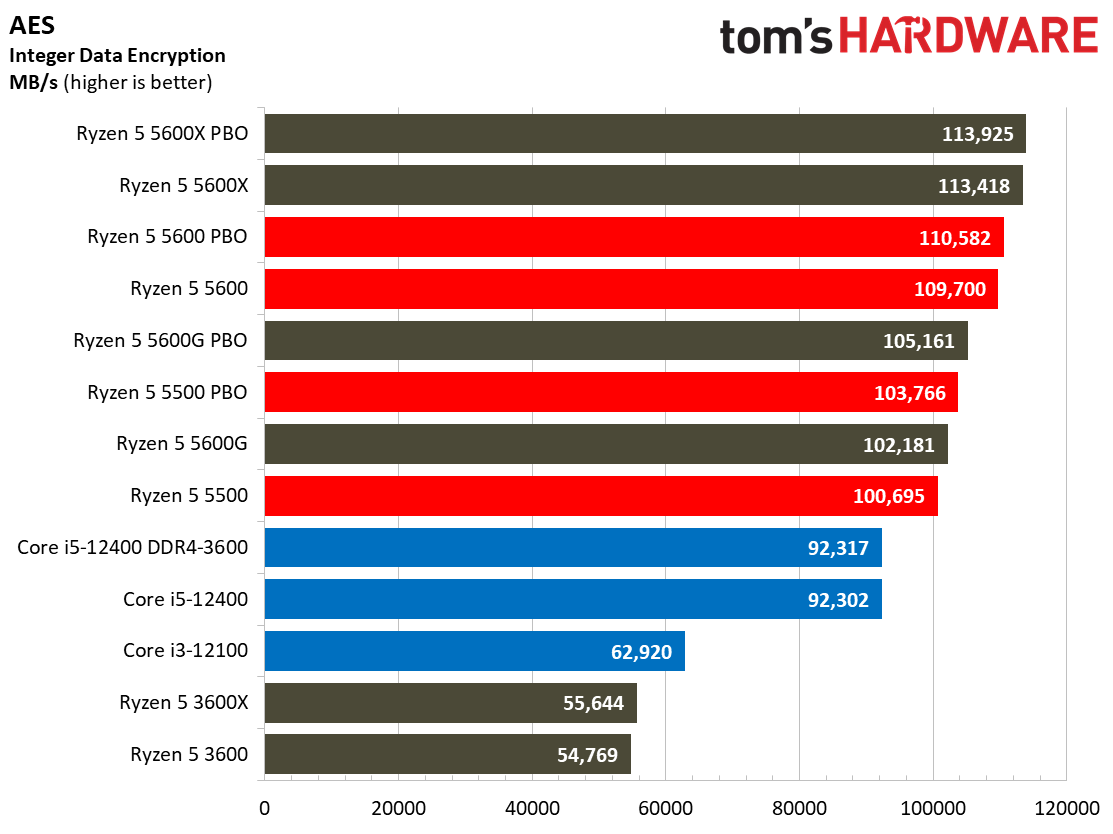
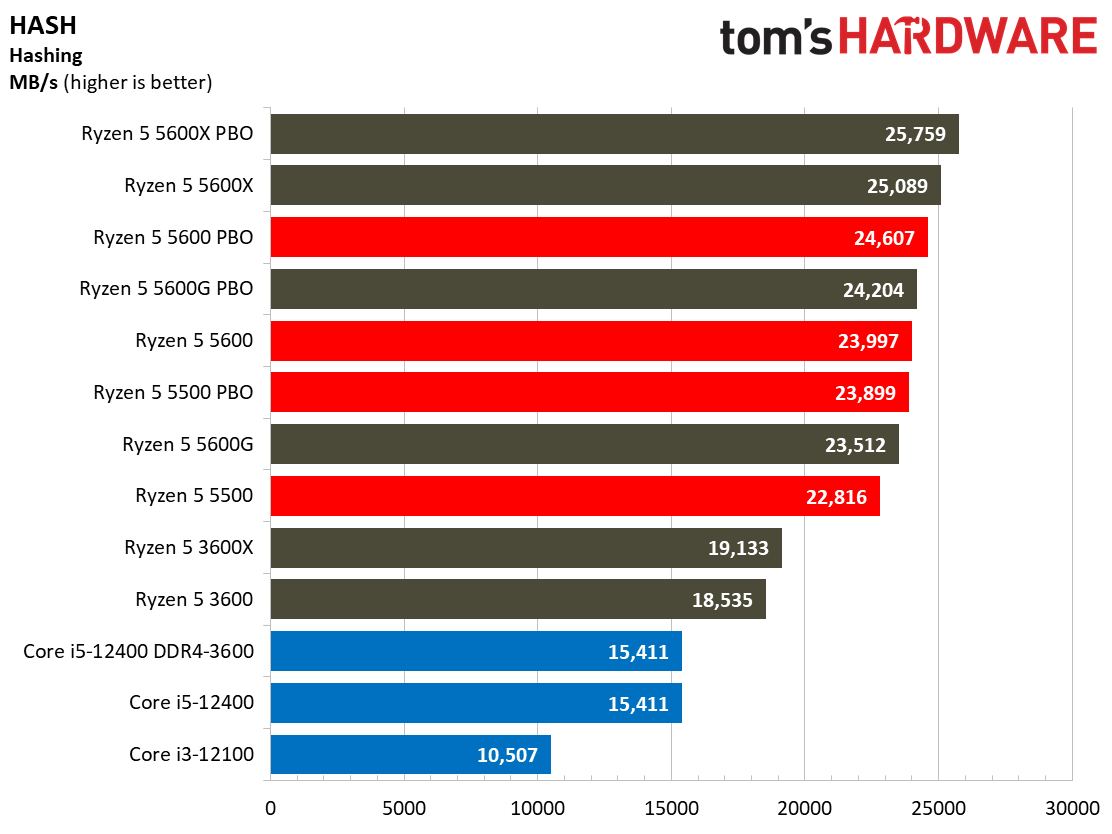
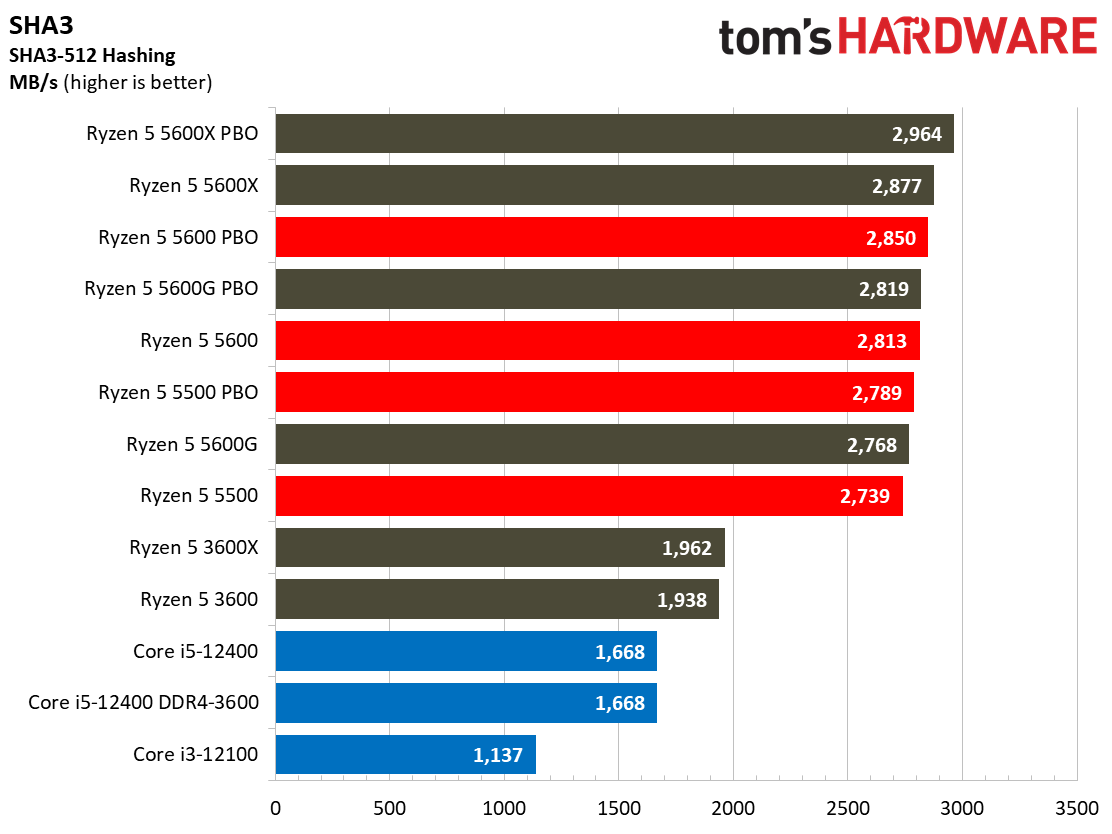
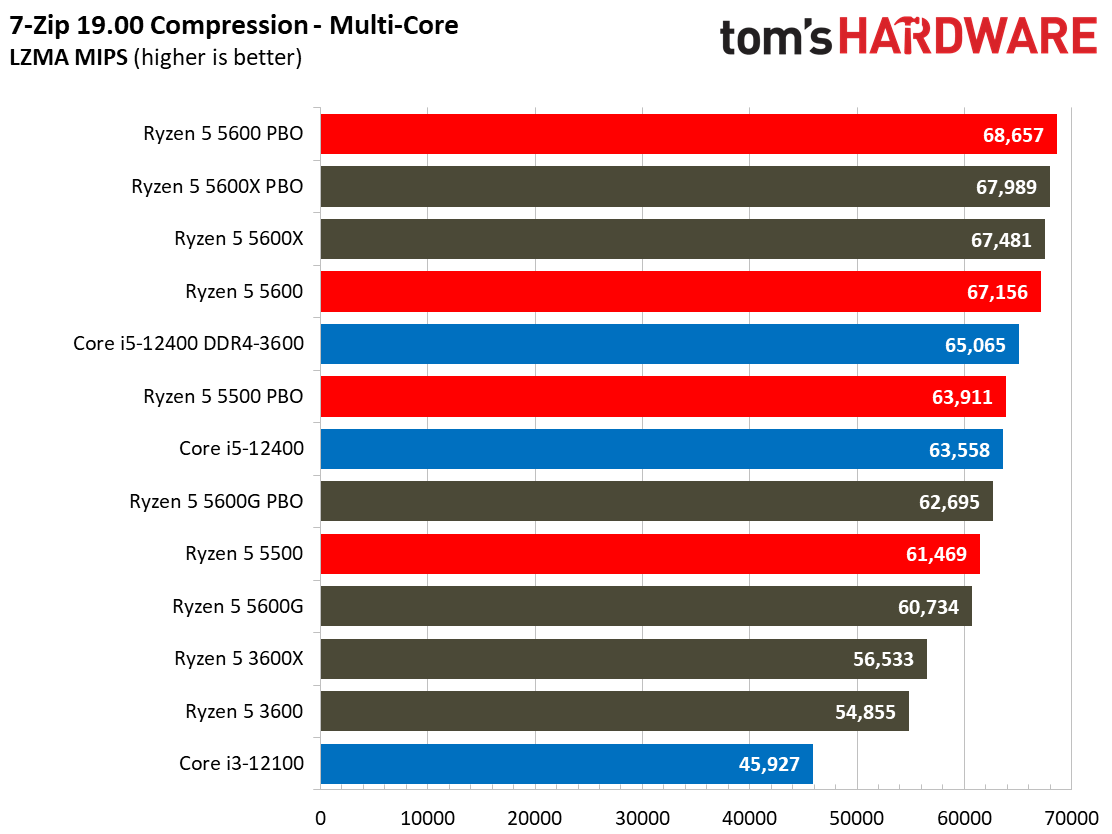
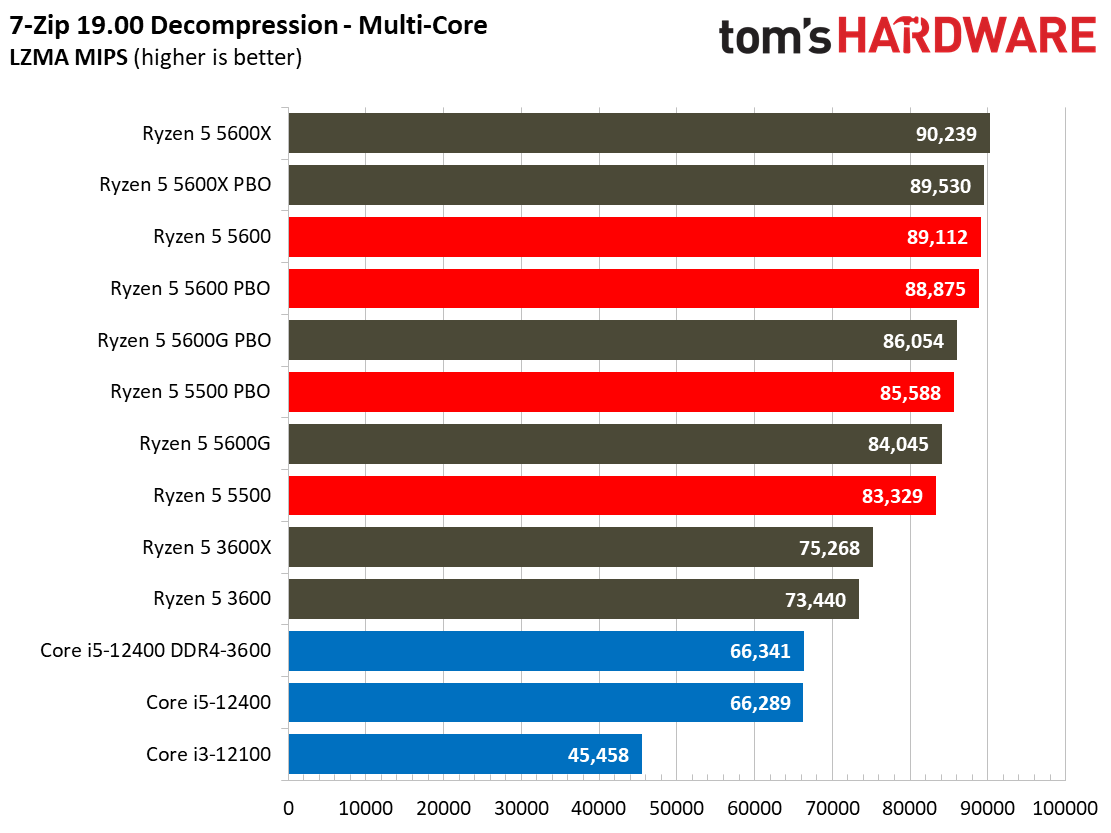
This section includes a diverse set of workloads, including exceedingly branchy code in the LLVM compilation workload and the massively parallel molecular dynamics simulation code in NAMD. The Core i3-12100 isn't very potent in these heavily-threaded applications, but the Core i5-12400 leads many of the benchmarks. Notably, the Ryzen 5 5600 does well in the NAMD workload due to its healthy slab of L2 cache. AMD benefits in the SHA3, AES, and HASH benchmarks from its cryptographic optimizations. That said, most of these types of workloads in this section aren't well-suited for this class of chip, but we include them as a reference.
- MORE: Best CPUs for Gaming
- MORE: CPU Benchmark Hierarchy
- MORE: AMD vs Intel
Current page: AMD Ryzen 5 5600 and 5500 Application Benchmarks
Prev Page AMD Ryzen 5 5600 and 5500 Gaming Benchmarks Next Page Zen 3 Enters the Budget Arena
Paul Alcorn is the Editor-in-Chief for Tom's Hardware US. He also writes news and reviews on CPUs, storage, and enterprise hardware.
-
ohio_buckeye I see why they did it though. They must have known the 5600 would be like the 3600. 95% of the performance of the x model and they must not have sold a lot of the x models in the zen 2 days, but maybe they figure by offering the 5600x first they’d make money from people who wanted to update and knew people wouldn’t buy as many of the upper models if the lower ones were available.Reply -
escksu 5600 could have been that killer chip. But it's too late now. I originally wanted to upgrade my 3600 but was put off by 5600x's price. Now, I don't see any reason to go for 5600 since AMD will be releasing new cpus very soon. Even Intel too.. so rather skip the 5000 series.Reply -
King_V The too-little too-late argument falls a little flat. I mean, that reasoning does make sense if you're only thinking along the lines of building a new system from scratch, but for upgrading an existing one, it can make sense.Reply
Not everyone with a Zen or Zen+ chip jumped to Zen 2.
EDIT: don't get me wrong, AMD should've come up with the BIOS updates sooner, and these chips could've done with being released a little earlier, but it seems a lot of people fall into the trap of looking at it only from a "build an entirely new AMD system vs build an entirely new Intel system" . . . and also aren't paying attention to the price drops. -
King_V Reply
Um, what's your point? Did you take a look and compare Intel's December 2021 stock price to June 2022?Tom Sunday said:Firing Back at Alder Lake! I am very disappointed with AMD continuing the bringing back trick, reengineering products, proffering rearchitected RDNA marketing efforts and generally offering lower-cost and lower-performing version models. Another example was AMD’s last minute effort and ditch with throwing the 5800X3D into the market representing the company's last hurrah for its long-lived Socket AM4 platforms.
But for me all of this 'rehash business' is really all about my money in the bank! A tainted AMD? The company’s share price has dropped significantly since December 2021 selling at $161 per share to whereby today June 27, 2022 it’s down to $88. Is there still hope for investors and a dream of a repeat in AMD stock pricing doubling again as was seen in 2020. Headwinds: AMD’s GPU and CPU’s have continued in struggling hard to remain competitive with NVIDA and INTEL! Besides astute investors would like to see AMD in building their own ‘Mega Fabs’ preferably here in the U.S and not relying on foreign entities in controlling AMD’s future and ultimate survival! Most certainly I would like to see AMD’s own production facilities rather then their seemingly continued 'refresh dancing' in the past. -
tennis2 As mentioned in the article, they might just be using these to clear stock of IGP-less APUs. Assumedly stock would be limited, so it makes sense to wait until now to launch them. By Sept/Oct nobody would buy these anyway, but until then they can clear the warehouse shelves and they don't have to purposefully disable functioning IGPs to create these SKUs for an extended retail period.Reply -
King_V ReplyTom Sunday said:This said I really would like AMD to doubling their stock value again. This alone would most certainly renew and or refurbish my fan status for the immediate future.
I see. Your only concern appears to be whether AMD's stock value will double again. I think you might've joined the wrong forum, then. This is a PC/tech enthusiast site, not an investment site. -
Atom Symbol ReplyAdmin said:We review AMD's new Ryzen 5 5600 and Ryzen 5 5500 that bring budget chips to the company's vaunted Zen 3 lineup.
AMD Ryzen 5 5600 and 5500 Review: Firing Back at Alder Lake : Read more
In year 2022, a review of an 6-core CPU, with some 4-core CPUs in the charts - but without any 8-core CPUs in the charts, is a pointless review. -
TerryLaze Reply
Even in the year 2022 not everybody needs more than 4 cores, for gaming even the lowest CPU in this chart is above 100FPS avg and 80FPS 99th.Atom Symbol said:In year 2022, a review of an 6-core CPU, with some 4-core CPUs in the charts - but without any 8-core CPUs in the charts, is a pointless review. -
Beelzeboss Replyescksu said:5600 could have been that killer chip. But it's too late now. I originally wanted to upgrade my 3600 but was put off by 5600x's price. Now, I don't see any reason to go for 5600 since AMD will be releasing new cpus very soon. Even Intel too.. so rather skip the 5000 series.
I see a reason. Its a 20-30% performance increase for current and future GPU without the need to upgrade my entire system. I have no intention of replacing my B550 mobo and 32GB 3600 to upgrade CPU next gen.